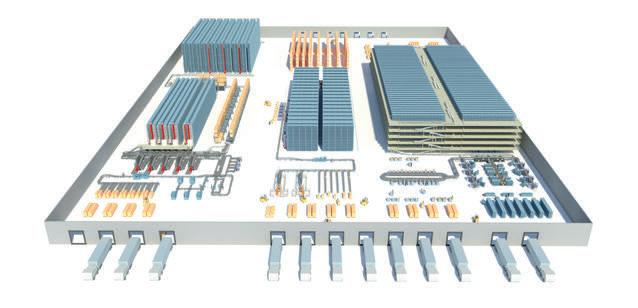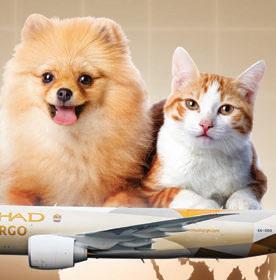
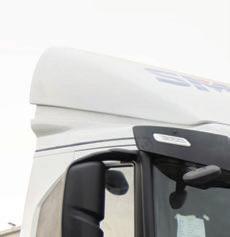


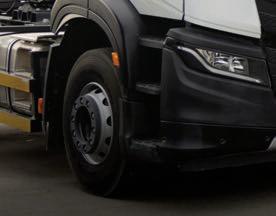
















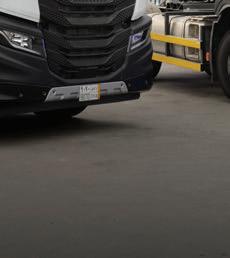




Full offering

- Full range vehicles with the most advanced technologies
- Highly customized product driven by market needs and optimized Total Cost of Ownership
High capillarity of aftersales
- Repair and Maintenance contracts and competitive warranty conditions
- Origin 100% IVECO Parts and a widespread network coverage


European technology
- High quality complete line-up in terms of tonnage, power, torque, safety, ergonomics
- High performance and robust trucks for extreme Off-road conditions
Customer centricity
- Comfort, ergonomics and the latest safety technology to make on board easier
- Driver Style Evaluation tool on Heavy ON-road range and optimized vehicle design to improve customer profitability


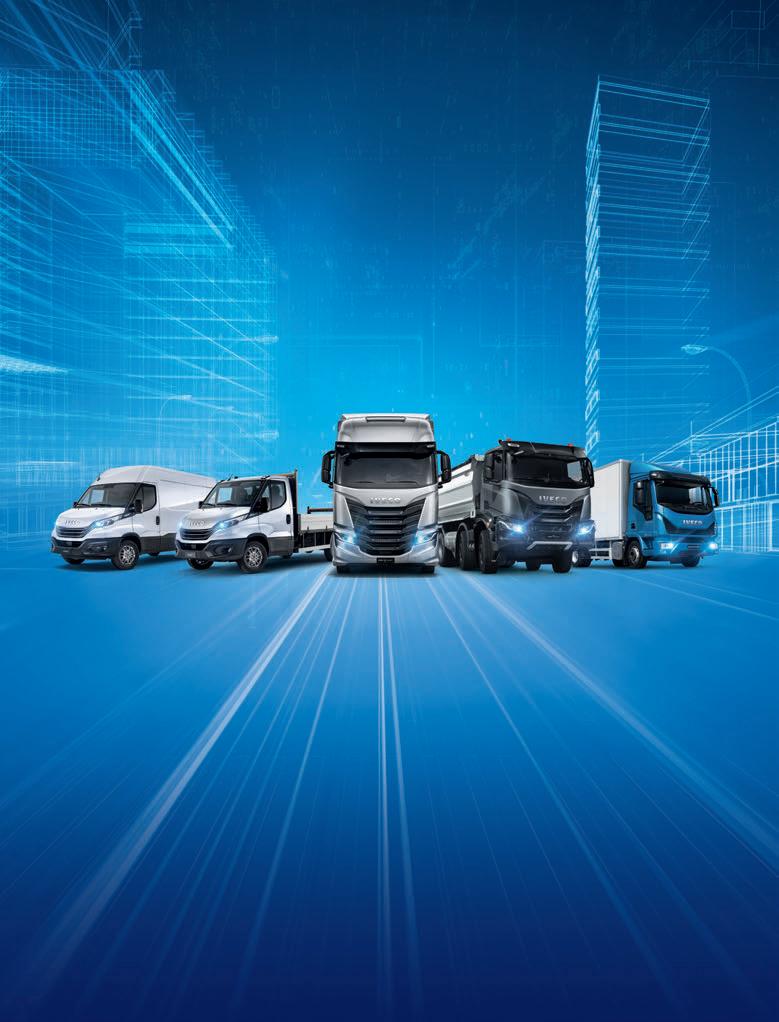

SIGNATURE MEDIA FZ LLE
P. O. Box 49784, Dubai, UAE
Tel: 04 3795678
Email: info@signaturemediame.com
Exclusive Sales Agent
Signature Media LLC
P.O. Box 49784, Dubai, UAE
Publisher: Jason Verhoven jason@signaturemediame.com
Editor: Abigail Mathias abigail@signaturemediame.com
Art Director: Johnson Machado johnson@signaturemediame.com
Production Manager: Roy Varghese roy@signaturemediame.com
It has been a busy month for us at Global Supply Chain. We commence with a riveting lead story on IVECO, an international company who together with Arabian Auto Agency, has formed a strategic partnership with the Saeed Mohammed Al Bassami Company -- a distinguished leader in Saudi Arabia’s transport sector.

We are also thrilled to highlight the region’s first Global Sanitary Brand, with GROHE which features Saudi-made products. At an exclusive event, our team had the opportunity to meet the talented individuals behind the collaboration, delve into the production process, and learn about the rigorous quality standards in local manufacturing.
In keeping with our focus on the interconnected journey that raw materials, components, and goods take before their assembly and sale to customers, we showcase Tetra Pak’s First-Ever Arabia Sustainability Report. The newly launched report delves into the company’s efforts towards fostering a circular economy throughout the Middle East region.
Printed and Distributed by Masar Printing and Publishing L.L.C., Part of Dubai Media Incorporated Dubai, UAE
Qatar’s own, Gulf Warehousing Company (GWC), one of the fastestgrowing logistics businesses in the MENA (Middle East North Africa) region, announces how it has joined the United Nations Global Compact (UNGC), the world’s largest voluntary corporate sustainability initiative. We speak to the experts who have made this possible. We also address the challenges and analyse solutions that would transform the Middle East & Africa (MEA) region into a world-class logistics hub.
As the excitement builds on the global race to embrace Artificial Intelligence (AI), we offer Oliver Wyman’s insights into the rapidly evolving landscape, revealing significant opportunities that it presents, while also highlighting growing concerns surrounding its adoption.
Digital transformation in procurement is revolutionising how organisations manage their purchasing processes. We offer key aspects and benefits in a specially curated column on the topic.
Our regular selection of the latest news, international logistics’ events, professional contributions, Opinion-Editorials and useful content, form a comprehensive aspect of this issue.
Contributor’s opinions do not necessarily reflect those of the publisher or editor and while every precaution has been taken to ensure that the information contained in this magazine is accurate and timely, no liability is accepted by them for errors or omissions, however caused. Articles and information contained in this publication are the copyright of Signature Media FZ LLE & SIGNATURE MEDIA LLC and cannot be reproduced in any form without written permission.
Saving the best for last, is a brand-new feature, called Balancing the business of logistics. We let a leading logistics professional offer you an insight into their working day. It is time management at its best. You will find it nowhere else but here in Global Supply Chain.
Enjoy this issue.
Abigail Mathias Editor
abigail@signaturemediame.com www.globalsupplychainme.com
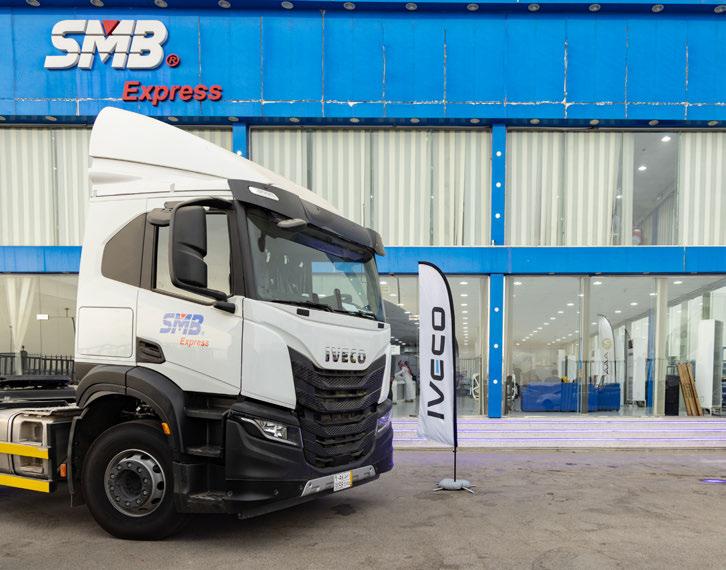

IATA states that total demand, measured in
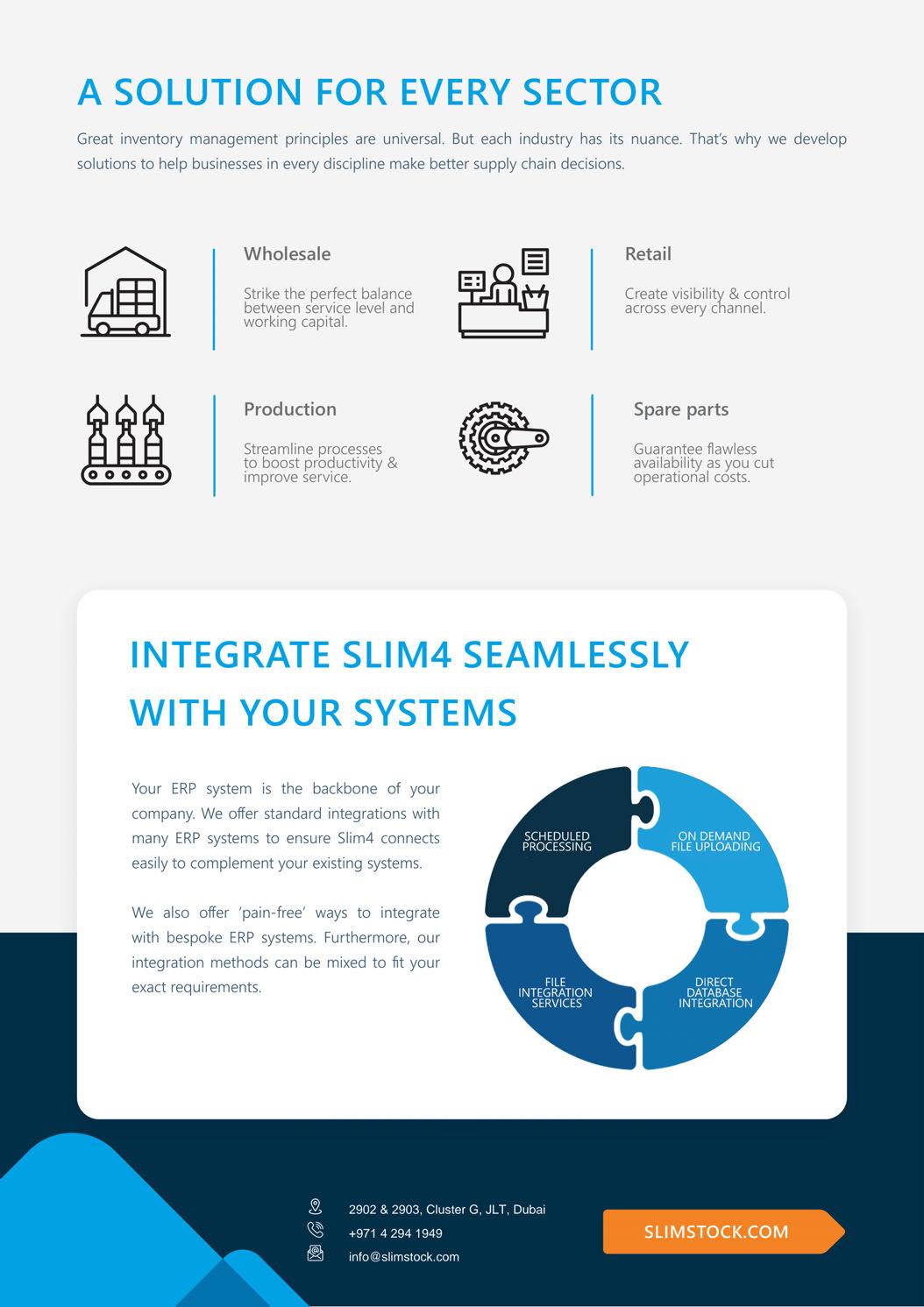

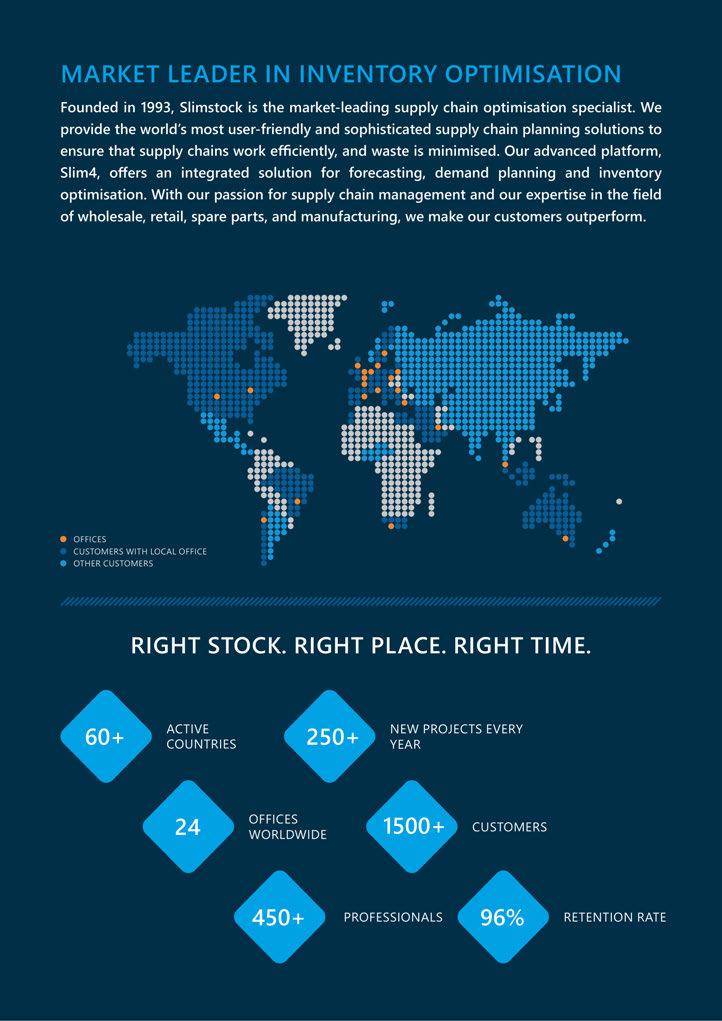

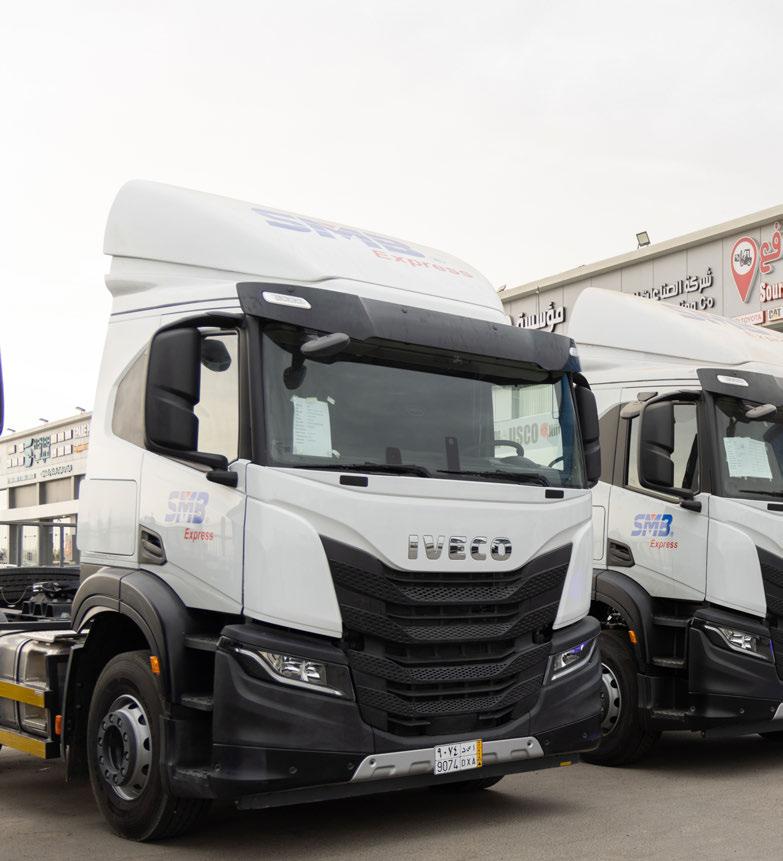
IVECO and Arabian Auto Agency deliver to Saeed Mohammed Al Bassami (SMB) 150 IVECO S-Way, the flagship of the IVECO heavy-duty range for on-road missions.









IVECO and Arabian Auto Agency (AAA), official dealer in the Kingdom of Saudi Arabia, recently started the delivery of 150 units IVECO S-Way tractor head, model AT440S47T ON, to Saeed Mohammed Bassami (SMB) at their facility in Jeddah. SMB plays a vital role in the transportation segment in the Kingdom. The delivery ceremony was attended by Sultan Albassami, the chairman of SBM.
Each of the IVECO S-Way have been assembled at Zeemat plant, the authorised assembly plant of IVECO trucks in Saudi Arabia. The units will join the SMB fleet for the mission for the 2024 transportation season. Saeed Mohammed Al Bassami (SMB) is considered one of the leading transportation companies in GCC markets, providing transportation and logistics services, in a professional manner that exceeds customers’ expectations, and building long-term relationships with them.
Maan Gharaibeh, General Manager of Arabian Auto Agency, commented: “At AAA, we are delighted to reinforce our strategic partnership with Saeed Mohammed Al Bassami company, a distinguished leader in Saudi Arabia’s transport sector. The delivery of this initial fleet of IVECO S-Way vehicles is enhanced by a tailored aftersales solution package, ensuring uninterrupted uptime for their growing fleet. Furthermore, this marks the beginning of an exciting journey between AAA and the SMB.”
Mohamed Tarzi, Sales Manager at the ZMS group, expressed his satisfaction with the deal. “This partnership is a testament to the trust that Saeed Mohamed Al-Bassami Company has placed in AAA and the capabilities of IVECO trucks. We are confident that



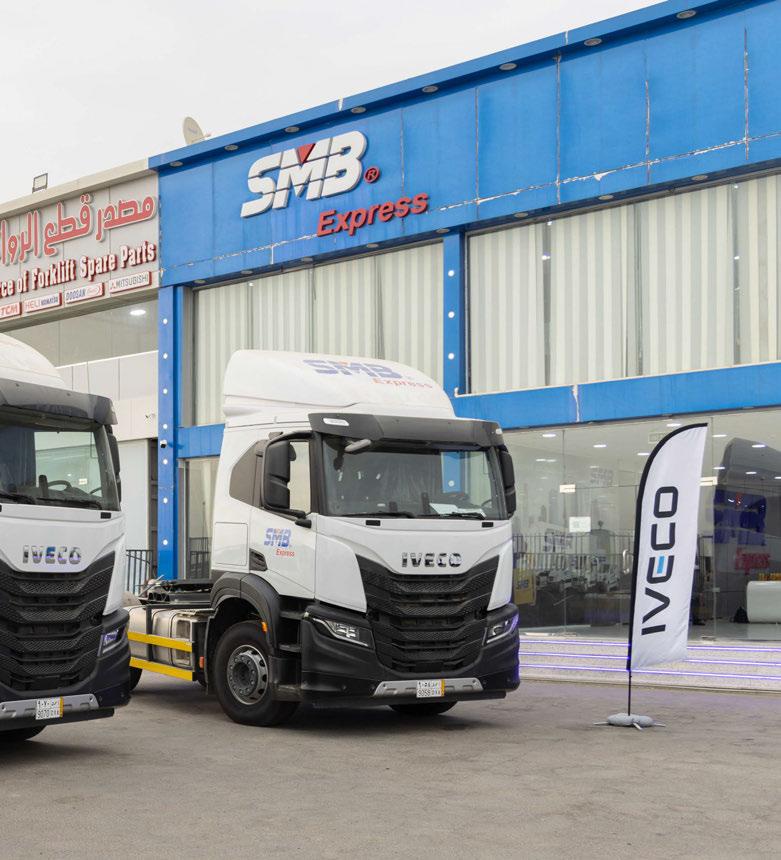
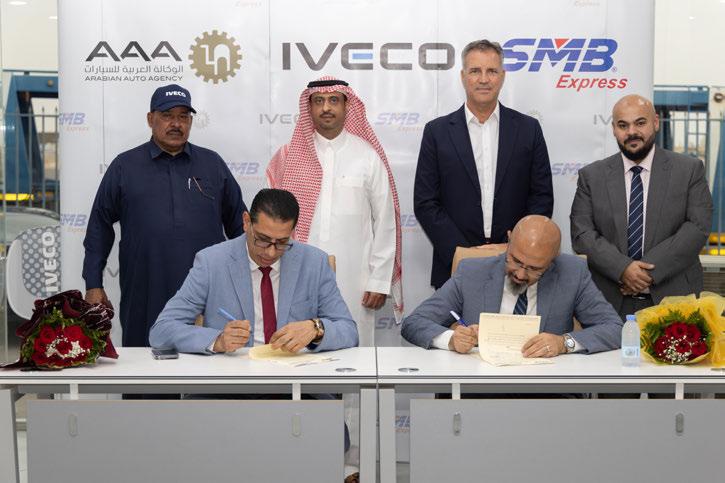
these vehicles will meet and exceed the company’s expectations.”
Antonio Caruso, IVECO Business Manager for Saudi Arabia, added: “After several success stories scored in Saudi Arabia during the last few years, our partner Arabian Auto Agency (AAA) in the Kingdom of Saudi Arabia has successfully commenced the delivery of 150 IVECO S-Way to Saeed Mohammed Bassami. Our collaboration with SMB is a demonstration to our commitment and reliability in providing the best transport solution. We always prioritise quality and excellent service to meet our customer’s business needs. We look forward to supporting SMB’s operations and strengthening our partnership in the future.”
IVECO S-Way is the new on-road vehicle of the new IVECO Way range, the ideal business solution for the fleet owner, and the perfect travel companion for the driver. It further increases its fuel efficiency, which was already among the best, with a new engine line-up and next generation rear axle, advanced technologies tailored
“This marks the beginning of an exciting journey between AAA and SMB.”
— MAAN GHARAIBEH, General Manager of Arabian Auto Agency
to the customers’ needs. It builds on the success this range has achieved since its European launch in 2019 and has proved extremely popular with drivers for its high levels of comfort. Customers appreciate the improvements in performance and in Total Cost of Ownership (TCO) that come with high reliability of a new truck.
In the face of fierce competition, logistics operators need top-level uptime, efficiency and productivity from their fleets. The new IVECO S-Way perfectly meets this requirement, providing a complete package of features without equal, developed with focus on driver centricity. It is more than a product: it offers a business model that covers the vehicle’s entire life cycle and helps IVECO’s customers to meet their own customers’ requirements.
In redesigning the cab from the ground up, IVECO has taken every opportunity to
deliver cost savings and productivity gains to the benefit of the owner’s profitability. All the elements of the new design work together to achieve a superior aerodynamic performance and deliver fuel savings up to 4% on top of the outstanding fuel efficiency that is the hallmark of this product family.
exterior has been studied with care to minimise air resistance.
The new roof is perfectly integrated into the front end of the vehicle, presenting a flat surface that minimises drag. Even the retractable front step that provides easy access to the windshield completely disappears when not in use. The front grille with high radius corners and side fins, the integrated headlights, the new bumpers design with integrated deflectors, together with the new design of the wheel arches, create flowing lines that optimise air flow –
and make a statement with a distinctive style.
The vehicle’s aerodynamic performance is further enhanced by additional features that reduce drag by closing gaps. They include the optimised aerodynamic kit with rubber extensions to close up the space between tractor and semi- trailer.
The new design of the door, which extends all the way down to the second step, creates a smooth surface on the sides of the cab, reducing turbulence at cruising speed.
The IVECO S-Way carries over all the advances introduced in the previous generations and adds a new cab entirely redesigned around the driver to provide the ultimate driving environment with outstanding ergonomics and controls layout.
The ergonomic layout of the controls ensures all the key functions are within easy reach of the driver. The multi-functional steering wheel, with 22 switches, puts all the necessary functions at the driver’s fingertips. This set-up eliminates distractions for the driver who can operate without ever needing to move his hands from the steering wheel. The dashboard and central stack have been redesigned to improve operating comfort and efficiency with a new layout and greatly increased functionalities. The new Start/Stop engine button and the slot for the electronic key with integrated remote control are conveniently placed on the dashboard near the DNR area.
The redesigned roof, lower tunnel and shaped upper shelf provide a comfortable standing height of 2.15 metres in the centre of the cabin, while the upper longitudinal usable space is 35 cm wider than in the previous model, providing easier access to the upper bed and compartments.
The night area combines functionality and comfort with its new symmetrical layout and well-placed storage, USB connections and controls.
The air conditioning system, and integrated parking cooler and heater systems ensure an ideal internal climate within the cab in all weather conditions, when driving or during stops.
“Our collaboration with SMB is a demonstration of our commitment and reliability in providing the best transport solution.”
— ANTONIO CARUSO, IVECO Business Manager for Saudi Arabia
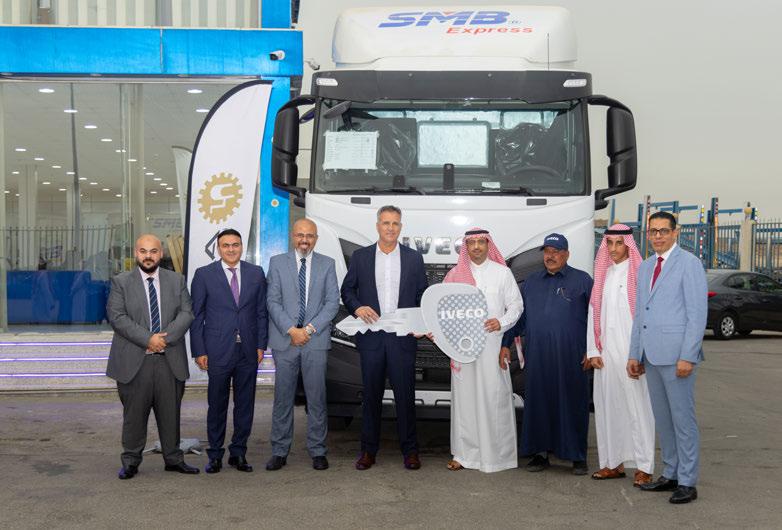
The IVECO S-Way has been developed with a strong focus on the driver, and the new cab has been redesigned and reinforced to ensure high levels of passive safety, with mechanical resistance compliant with ECE R29.03 cab crash standards.
The new design also provides much improved direct visibility for the driver with the one-piece side windows and rear- view mirrors. The IVECO S-Way also offers full LED lights, which have a much sharper beam that carries further, improving visibility and obstacle perception by 15%, further enhancing safety in low-light conditions. In addition, the IVECO S-Way features a complete array of Advanced Driver Assistance Systems to help the driver operate the vehicle efficiently and safely while reducing fatigue on the road. The cab also addresses security when the vehicle is parked with the new design of the door
which now extends all the WAY down, leaving only the bottom step exposed, and includes an additional mechanical door lock inside the cab.
The new engine line-up meets Euro III/ V emissions standards. The Cursor 9 and 13 engines provide a wide range of power ratings starting from 360 hp to 560/570 hp. The engine efficiency has been improved with introduction of Common Rail injection system.
The 9 and 13-litre engines have been coupled with new, high-efficiency HiTronix 12 speeds automated gearbox which enables substantial improvement in electronic clutch control, resulting in greater efficiency, enhanced durability and better performances.
Additional features contribute to the IVECO S-Way’s fuel economy. They include the new Ecoroll function which automatically disengages driveline in smooth slope to exploit vehicle inertia, Ecoswitch which optimises engine power/torque output according to vehicle load and mission, and Tyre Pressure Monitoring system to keep under control the pressure of each tyre for increased safety and fuel efficiency.
“We are confident that these vehicles will meet and exceed the company’s expectations.”
— MOHAMED TARZI, Sales Manager at the ZMS Group
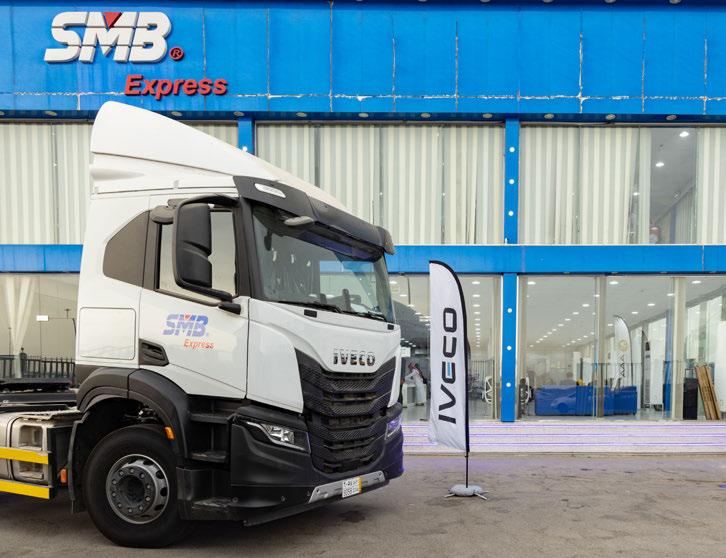






















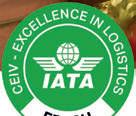






GROHE, a leading global brand for complete bathroom solutions and kitchen fittings, has become the first global sanitary brand to offer products made in Saudi Arabia, with a new manufacturing facility in Dammam dedicated to GROHE brand products. At an exclusive event, the-state-of-the-art facility developed in collaboration with Zamil Plastic Industries Co., was unveiled to select media.
At an event in Saudi Arabia, Global Supply Chain had the opportunity to meet the talented individuals behind the collaboration, delve into the production process, and learn about the rigorous quality standards in local manufacturing. This exclusive event also highlighted the excellence of Saudi-made products, crafted with cutting-edge German technology.
In an exclusive interview with Stefan Schmied, Leader IMEA, LIXIL International, we bring a detailed insight on this strategic partnership.
• Localised production will support job creation, skills development, and economic growth, in line with Saudi Vision 2030
• The GROHE brand manufacturing facility will highlight Saudi-made products enhanced by German technology
What are the strategic plans of GROHE and KSA?
Saudi Arabia is one of the core markets for the GROHE brand as part of LIXIL and the IMEA region. Over the past 30 years GROHE has consistently invested in the country. With opening this manufacturing, we show that our strategy is not limited to importing; we are committed to establishing a Saudi manufacturing footprint. This approach is central to our growth plans, and we see significant future potential, as highlighted by opening of our manufacturing facility at Zamil Plastic Industries Co.
As one can see at the opening with the VIPs from the PIF, key developers, the government and the media, which underscores the importance of our presence in the region.
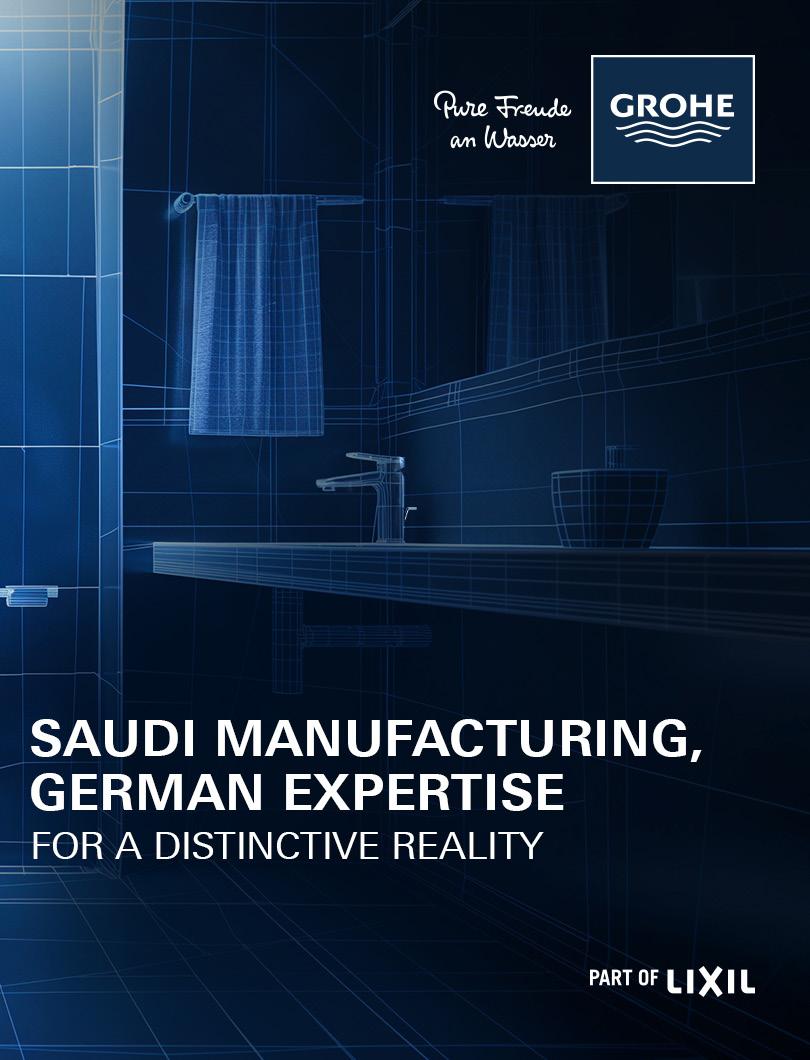
Can you explain some of the sustainable practices of GROHE?
The GROHE brand, part of LIXIL, upholds sustainable practices in alignment with LIXIL’s sustainability pillars. A key example is our local production, which significantly reduces logistical time. Previously, producing in Germany required longer transportation for deliveries to KSA, but with our local manufacturing facility at Zamil Plastic Industries Co., we can now deliver faster and more sustainable. This not only enhances the customer experience but also improves the efficiency and sustainability of our supply chain, reinforcing our commitment to reducing our carbon footprint. Additionally, we ensure that all raw materials used adhere to the highest sustainability standards, further aligning with LIXIL’s core environmental goals.
What are some of the highlights of the group’s latest innovations and technologies?
One of the GROHE brand’s most notable innovations addresses the need for waterefficient flushing systems. Traditionally, flushing systems for WC consumed nine or six liters of water per flush, but we have developed more advanced solutions that reduce water usage to just four and down to even three liters per flush. However, this transition requires more than just replacing the system, it’s a complex process. Reducing water usage from nine liters to three needs
adjusting the underlying infrastructure. Key components like the flushing valves and even the piping system must be carefully recalibrated to ensure proper functionality. This requires meticulous coordination between our engineers, contractors, and installers to understand the technical impacts and ensure that the system operates efficiently and sustainably. Furthermore, we have showers systems that with a reduced weather usage deliver the shower experience the end-user gets with higher water consumption same for washbasin taps.
“Localised production will support job creation, skills development, and economic growth, in line with Saudi Vision 2030. The GROHE brand manufacturing facility will highlight Saudi-made products enhanced by German technology.”

Stefan Schmied is currently the Leader of LIXIL International, IMEA region. IMEA region entails India and the Subcontinent, the Middle East including Türkiye, and the entire African continent. He is responsible for accelerating the growth and enhancing the long-term sales performance of the GROHE brand through cross-regional collaboration and strategic innovation.
Schmied has over 20 years of industry experience, during which he has led key strategic initiatives, expanded channels, built brands, and managed sales operations in the retail, wholesale, and project business for global companies. Stefan previously took over the project business channel at GROHE, transforming it into an independent Business Unit which became a key growth driver for LIXIL EMENA. He led the specification and execution of new-build and renovation projects, e.g., globally leading hotel brands, iconic airports, international healthcare groups and prominent residential developers worldwide.
Before Joining GROHE as part of LIXIL, he was the CEO and President of major construction material groups in Europe and Asia. Previously, he served as President of the Tiles and Sanitary Ware Division at a global manufacturer of premium ceramic products based in the Middle East. Stefan also spent nine years at an international manufacturer of sanitary technology in various international senior management roles.
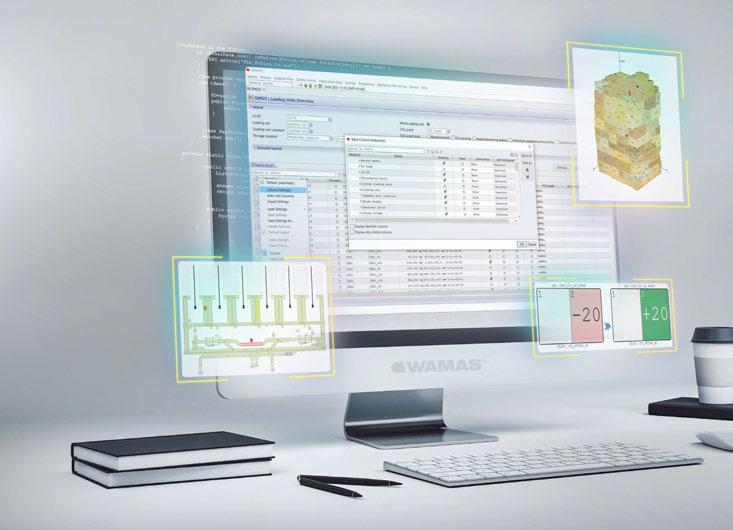


What is data-driven logistics and how does it stabilize the warehouse automation operation for you?

With the WAMAS Control Center, this isn’t just a hypothetical scenario— it’s a real possibility. Data-driven logistics involves using data and analytics to optimize various aspects of the supply chain, including inventory management, transportation, and warehouse operations.
Tailored to meet the specific demands of industries from fashion to pharmaceuticals, WAMAS provides warehouses with actionable insights that enable you to optimize operations, improve e ciency, and adapt to changing market conditions, thereby stabilizing warehouse automation operations.
Discover

Receive proactive notifications for faults and maintenance, boosting operational e ciency. Customize dashboards to turn complex data into clear, actionable insights. Drive maximum e ciency and cost savings, leading to unmatched customer satisfaction.
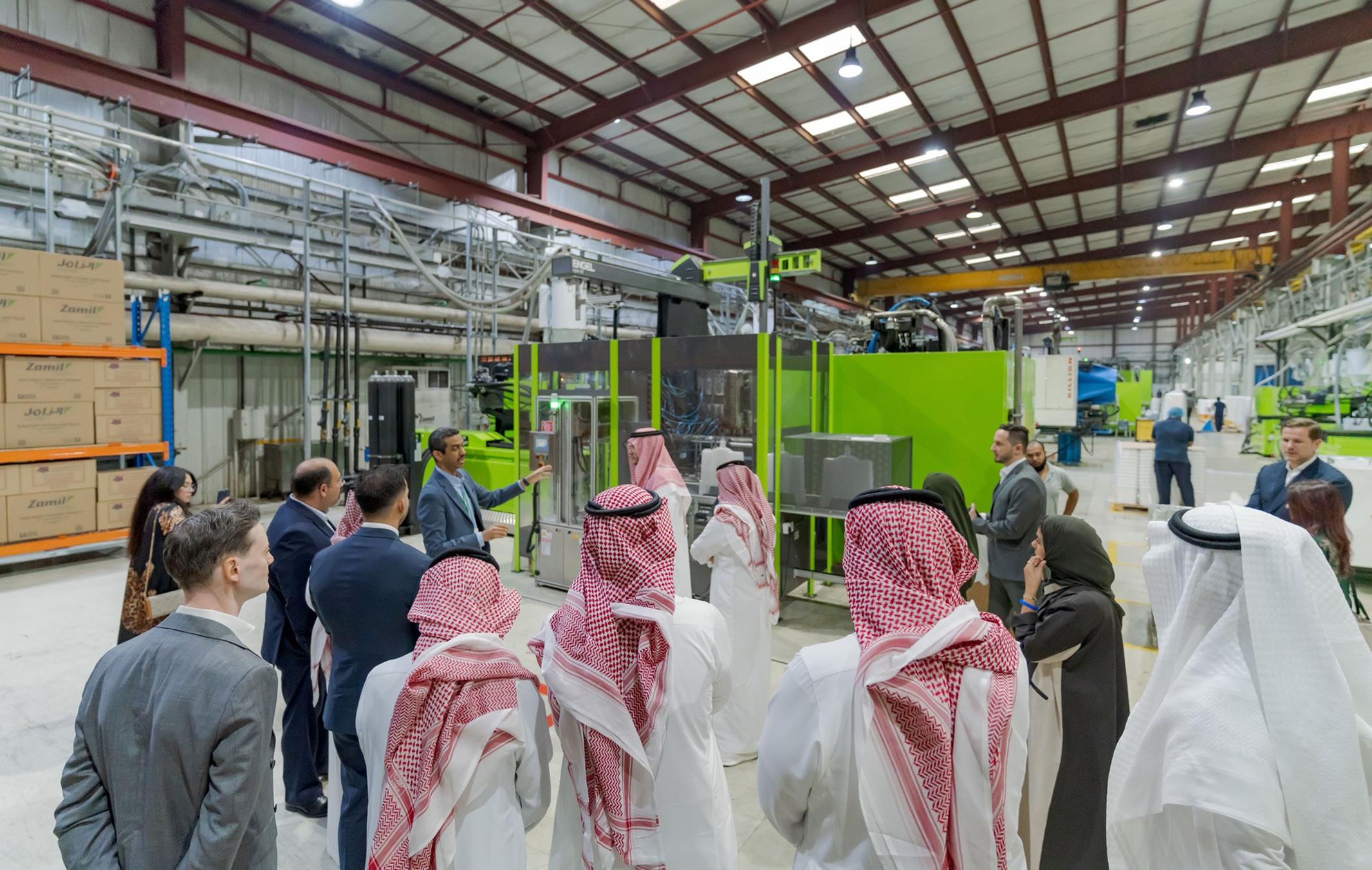
“Saudi Arabia remains a key market for us, with great potential to introduce more advanced products. By emphasizing innovation and delivering sustainable, high-quality products, we are dedicated to meeting the evolving demands of this important region.”
In terms of durability and longevity of GROHE brands that people know about, what can you tell us in terms of, products being durable?
When it comes to durability and longevity, the GROHE brand takes a distinct approach that reflects the very German philosophy of precision and durability. Our commitment is to create products that stand the test of time and are built to last.
With GROHE, for example, the concealed cisterns inside the wall are designed to last up to 50 years, meaning there’s no need to replace them. You might update a visible element like a push plate, but the core system is made to last for decades. Durability is key, both from the inside and from the outside GROHE products are built to withstand daily use without compromising on performance. Often, people make quick decisions based on appearance, picking a product that looks great in the showroom. But looks alone don’t guarantee quality. Many products may have their finishes fade or their internal components, like the cartridge that
controls water flow, fail within a few years. At GROHE brand, quality is at the heart of everything we design, ensuring longevity and reliability for our customers.
Does the new partnership open avenues to serve KSA and the larger GCC, even the MENA region?
The partnership with Zamil Plastic Industries Co. shared vision for sustainable growth in the region. Zamil Plastic is an outstanding partner, deeply committed to the same values that define the GROHE brand. Their commitment to quality and reliability, coupled with their use of local raw materials to ensure the highest standards, make them an ideal partner. Moreover, their forwardthinking approach perfectly aligns with our long-term strategy, opening new avenues to better serve not only KSA but also the broader GCC and IMEA regions.
Are there any areas in which you feel you can improve your market share?
Our focus is on strengthening our presence
in key markets like Saudi Arabia by continually enhancing our offerings and understanding customer needs. We are committed to expanding the reach of our innovative solutions.
Saudi Arabia remains a key market for us, with great potential to introduce more advanced products. By emphasizing innovation and delivering sustainable, high-quality products, we are dedicated to meeting the evolving demands of this important region.
And finally, has GROHE learnt any valuable lessons with ZAMIL Plastic Industries Co. and their facility?
One significant insight we’ve gained from working with Zamil Plastic Industries Co. is the remarkable speed at which things move here compared to for example Europe. Decisions are made swiftly, and actions are implemented just as quickly. It reflects the entrepreneurial spirit, ambition, drive, and willingness to invest in growth, all while taking calculated risks to achieve success.
The international food processing and packaging solutions company, Tetra Pak recently announced the release of its inaugural Arabia sustainability report.
The report highlights the company’s efforts to establish a comprehensive recycling infrastructure for carton packages, setting a regional benchmark in the Middle East.
The company has moved the dial towards a regional circular economy in a landmark agreement between Tetra Pak and Union Paper Mills (UPM) that brings capacity to recycle 10,000 tons of carton packages waste annually in the United Arab Emirates. Through efforts to establish advanced recycling systems across the region and push circularity, Tetra Pak has secured a combined investment of over USD 3.6 million in carton packages recycling infrastructure through strategic partnerships with UPM in the United Arab Emirates, OPI and STP in the Kingdom of Saudi Arabia.
“At Tetra Pak, we believe in leading by example, and our investments in recycling infrastructure are a testament to our commitment to sustainability and an even deeper commitment to supporting
our customers achieve their sustainability goals”, said Marcelo Piva, Sustainability Director, Middle East and Africa. “This report highlights our ongoing efforts towards a circular economy, and our contributions to a more sustainable future for the region.”
The report also highlights the company’s flagship circularity initiatives, such as: Water Filtering Station at IFFCO Nabatat Plant in Saudi Arabia: Tetra Pak has collaborated with IFFCO Group to invest in a water filtering station that recovers and reuses 95% of the water used in the equipment, significantly reducing water wastage and enhancing resource utilisation. It also runs successful School Milk Programs. Additionally, Tetra Pak’s Jeddah factory that exports to 11 countries in the Middle East, has rolled out several energy and water conservation initiatives and cut material waste through innovative technologies, demonstrating Tetra Pak’s commitment to minimizing its environmental footprint. Taking a bold initiative in this critical space, Tetra Pak’s has not only set new industry standards, but acts as a catalyst driving meaningful change across the region.

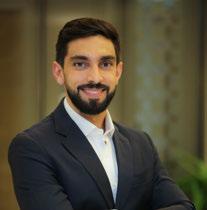
Marcelo Piva, Sustainability Director, Middle East and Africa.
• The newly launched sustainability report delves into the company’s efforts towards fostering a circular economy throughout the Middle East region.
• The report covers the company’s significant impact across key areas, including Circularity, Nature, Climate, Food Systems, and Social Responsibility.
• The report cites a combined USD 3.6 million investment in carton packages recycling infrastructure through partnerships with Union Paper Mills (UPM), Obeikan Paper Industries (OPI) and Saudi Top Plastics (STP).
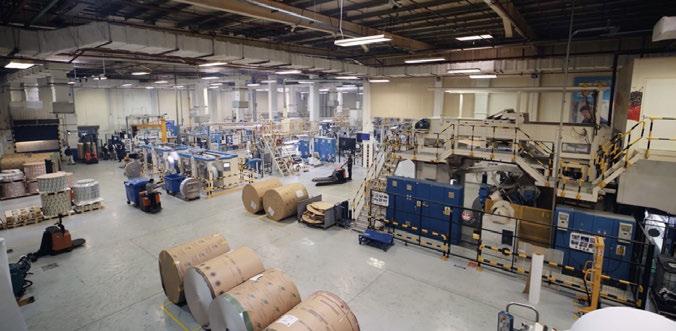
• Cements DTC’s status as Dubai’s premier taxi operator with a taxi fleet size of nearly 6,000 vehicles • New plates expected to generate additional annual revenue of AED 100 million
Dubai Taxi Company PJSC (“DTC” or the “Company”), a leading provider of comprehensive mobility solutions in Dubai, recently announced that it had been awarded 300 new plates at the latest Dubai’s Roads and Transport Authority (RTA) auction, solidifying its position as Dubai’s largest taxi operator. The award increases DTC’s taxi fleet to almost 6,000 vehicles, increasing its taxi market share to 46% and demonstrating its commitment to serving the growing demand for sustainable and efficient transport in the emirate, driven by robust population and economic growth.
The expanded fleet is expected to generate an additional AED 100 million
in annual revenues, demonstrating the Company’s ability to drive shareholder value and execute on its strategy of fleet expansion and enhancement.
Mansoor Rahma Al Falasi, CEO of Dubai Taxi Company, commented: “The award of 300 new plates is a key part of DTC’s fleet expansion strategy. In 2024 our fleet has grown by approximately 10%, reaching nearly 9,000 vehicles across all our segments, which include taxis, limousines, buses, and motorcycles. Our investment in growth, innovation and customer-centric solutions underscores our position as the leading transport operator in Dubai.
“The continued expansion of our fleet also reflects our commitment and ability
to add capacity in response to Dubai’s population and tourism growth which has increased demand for mobility services from both residents and visitors to the emirate.
“The award is expected to generate additional revenues of up to AED 100 million annually, creating substantial shareholder value and enabling further investments in our operations to cement our market-leading position.
“Of the 300 new plates, 25% will be allocated to electric taxis, underlining our commitment to sustainability. This move is part of the Company’s strategy to transition towards innovative low carbon mobility solutions and support Dubai’s net zero emissions target by 2050.”
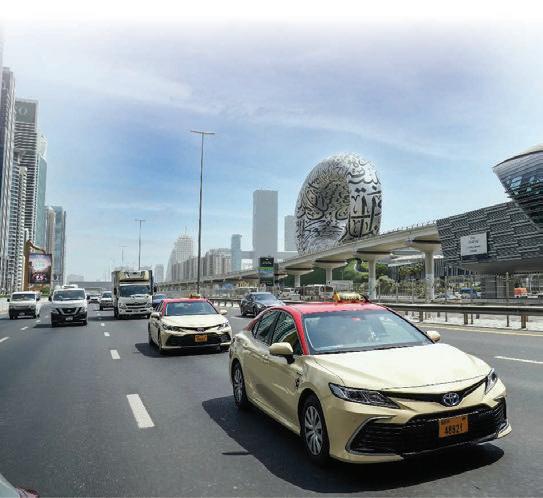









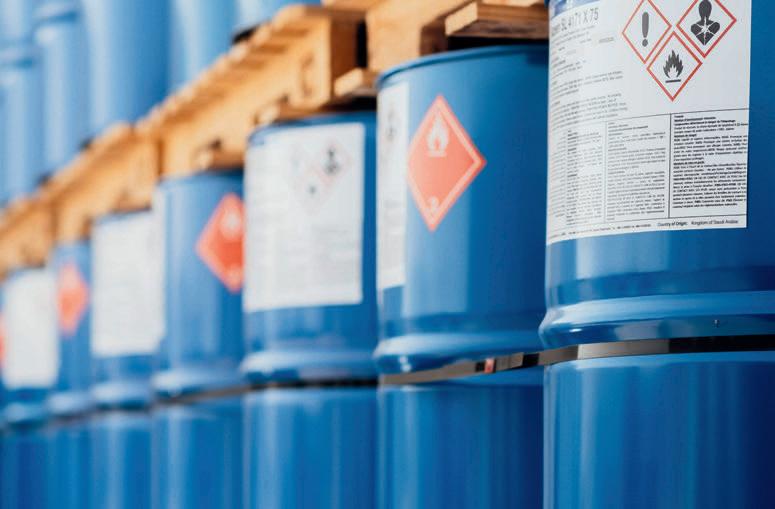



Empowering Your Chemical Supply Chain Beyond Boundaries...



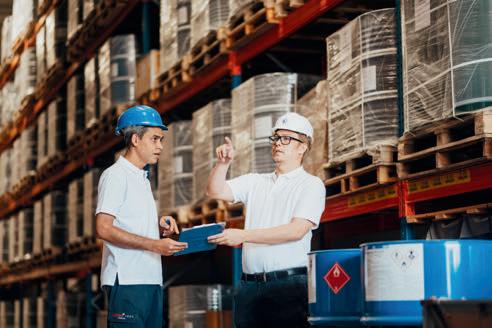

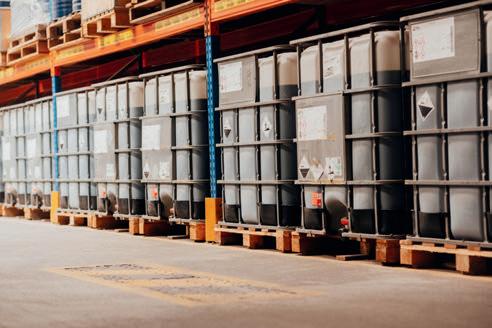

First chemicals industry company in Saudi Arabia and Middle East to achieve this recognition for excellence in innovation, technology adoption, and continuous improvement
Tasnee, a leading Saudi industrial and petrochemical company, has received the prestigious SAP Center of Expertise (CoE) certification. This milestone positions Tasnee as the first and only customer in the chemicals industry in Saudi Arabia and the Middle East to achieve this distinguished recognition, further reinforcing its leadership in digital transformation and operational excellence.
The SAP CoE certification is awarded to organisations that adhere to SAP’s highest standards in innovation, technology adoption, and continuous improvement. This recognition reflects Tasnee’s unwavering commitment to leveraging SAP solutions to drive business efficiency, optimize performance, and align with global best practices.
“This achievement is a testament to Tasnee’s dedication to driving digital transformation and leveraging the latest SAP innovations to support our business objectives,” said Omar K Al-Belali, Tasnee CIO. “Being the only company in the chemicals industry to receive this certification in the region underscores our commitment to continuous improvement, technology adoption, and alignment with SAP’s best practices.”
As part of its ongoing digital transformation journey, Tasnee’s technology and innovation strategy is closely aligned with the vision and mission set by senior management, ensuring that their IT infrastructure supports the organization’s short and long-term business goals. The company has already successfully implemented several cutting-edge SAP solutions, including SAP S/4HANA Cloud, SAP SuccessFactors, SAP Ariba, SAP Signavio and SAP BTP, to streamline operations,
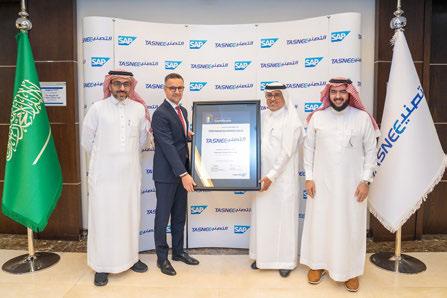
(From Left) Fahd Nawwab, Vice President, SAP Saudi Arabia, and Andy Froemmel, SAP VP & GM, Head of Cloud Success Services, Middle East – North Africa, Presented the certi cate to Tasnee’s CEO Fawaz Al-Fawaz and CIO Omar K Al-Belali.
enhance decision-making, and improve business agility. This certification validates Tasnee’s capacity to sustain and evolve these technologies, driving measurable value across the organisation. Tasnee has consistently demonstrated a commitment to innovation, having been an early adopter of SAP solutions such as RISE with SAP, SAP SuccessFactors, and SAP Integrated Business Planning (IBP). This proactive approach to adopting and piloting new technologies has positioned the company at the forefront of digital transformation within the chemicals industry.
Fahd Nawwab, Vice President, SAP Saudi Arabia, praised Tasnee for the accomplishment, saying, “Tasnee has
demonstrated exemplary leadership in digital transformation through its strategic adoption of SAP technologies. Tasnee is the first to have achieved this rigorous certification in the chemicals industry in the Kingdom and the Middle East region. This achievement sets a new benchmark for innovation and business excellence in the region.”
Tasnee’s CoE certification positions the company as a model of success for the chemicals industry and beyond, showcasing how a comprehensive approach to innovation, continuous improvement, and adherence to best global practices can elevate an organization to become both a regional leader and a global case study in operational excellence.
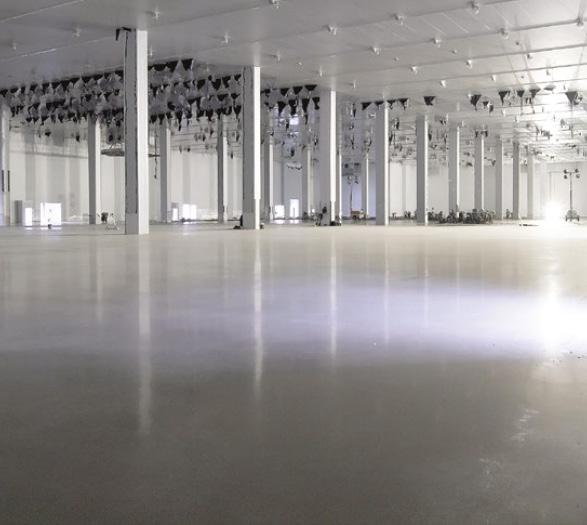

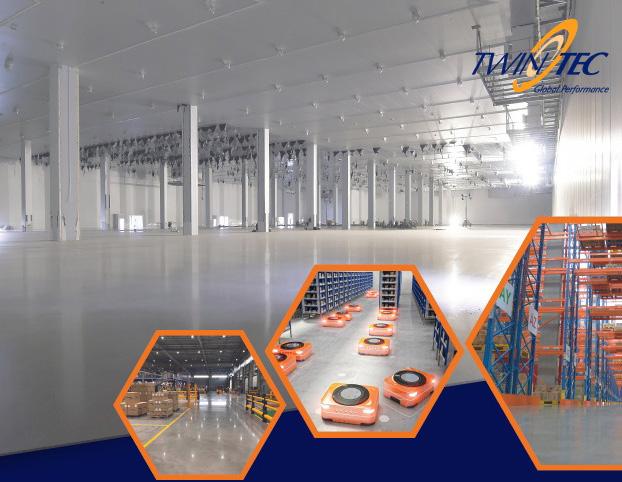

- A comprehensive framework to enhance operational efficiency
- Implementing a strategy to strengthen presence in Oman Market
Gulf Warehousing Company Q.P.S.C (GWC) – one of the fastest-growing logistics businesses in the MENA region – recently announced that its wholly-owned subsidiary, FLAG Logistics, has received four prestigious ISO certifications, reaffirming its commitment to ensure the highest quality standards and global best practices.

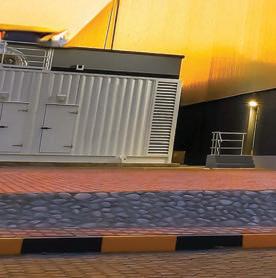

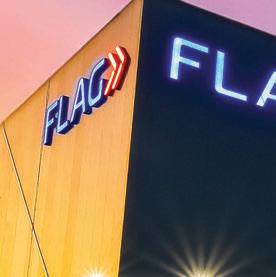
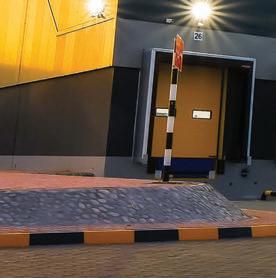

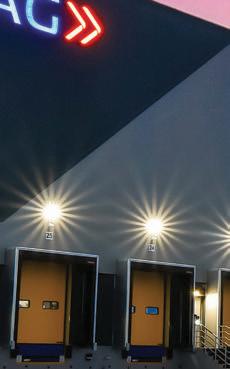

FLAG Logistics has been awarded ISO 28000:2022 for Security Management System (SMS), along with three ISO Certifications for its Integrated Management System (IMS), which includes ISO 9001:2015 for Quality Management System (QMS), ISO 14001:2015 for environmental management systems (EMS), and ISO 45001:2018 for occupational health and safety management systems. These certifications were granted following a rigorous external audit, during which the company demonstrated full compliance with all requirements.

ISO certifications are globally recognised as the most prestigious international standards for quality, health and safety, environmental, and security management systems. They provide a comprehensive and reliable framework that enhances the company’s ability to improve operational efficiency, while maintaining the highest global standards through unified and integrated processes.
The ISO 28000 - 2022 standard provides a best practice framework to reduce security risks across all activities, functions and operations that have an impact on the


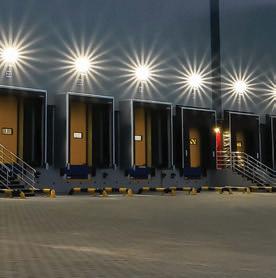
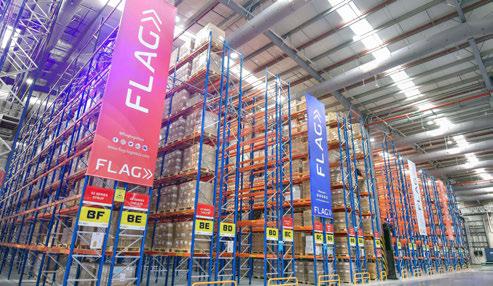
security management of the organization including, but not limited to, its supply chain. Hence, it can be used throughout all aspects of security of the organisation.
Implementing an Integrated Management System, FLAG Logistics ensures compliance with the quality standards and requirements of the ISO 9001:2015 standard. This certification is a testament to the company’s robust quality management system, which aligns with global best practices. It also confirms FLAG’s ability to consistently deliver high-quality products and services that meet and exceed expectations of customers, while also complying with all relevant legal and regulatory requirements.
In addition, the IMS incorporates ISO 14001:2015 standard, highlighting FLAG Logistics’ commitment to continuously improving its environmental management system and effectively managing its environmental responsibilities. By identifying opportunities and risks, the framework ensures the implementation
of mechanisms to improve resource efficiency including recycling waste, and optimising water and energy consumption. The ISO 45001:2018 certification, on the other hand, provides a framework for implementing the highest global standards for occupational health and safety, ensuring the well-being of the company’s workforce and their sustainable performance, while also focusing on enhancing the effective management of health, safety, and security.

FLAG Logistics is implementing a strategy to strengthen its presence in Oman, where it is the first company to launch at Khazaen Economic City. Strategically located near to transport links, borders, and within only two hours’ drive of 80% of Oman’s population, FLAG operates from a modern 50,000m² infrastructure in Khazaen Economic City, which is segmented into specialist areas, each tailored to address distinct logistical needs including dry, ambient, ambient, chilled and frozen warehousing, bulk storage, records management and marshalling areas. The warehouse and distribution centre measure 27,500m².
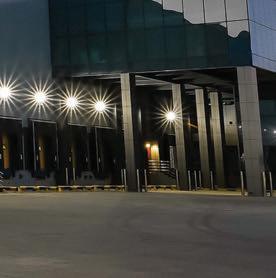

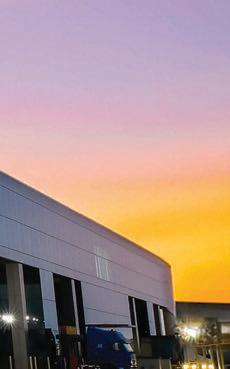

Gulf Warehousing Company Q.P.S.C (GWC) – one of the fastest-growing logistics businesses in the MENA region – announced it has joined the United Nations Global Compact (UNGC), the world’s largest voluntary corporate sustainability initiative. By joining the UNGC, GWC aligns itself with over 23,000 companies from 166 countries worldwide committed to promoting responsible business practices and Sustainable Development Goals (SDGs).
Shaikh Abdulla Bin Fahad Bin Jassim Bin Jaber Al Thani, GWC Managing Director said: “Joining the UNGC represents GWC’s commitment to aligning its operations and strategies with ten universally accepted principles in the areas of human rights, labour, environment and anti-corruption, and contribute to implementing the 2030 Sustainable Development Goals creating positive social and environmental impact through our core business activities.”
He added: “This step plays a significant role in solidifying our position as a leader in sustainable business practices within the State of Qatar, further enhancing our long-term vision which aims to contribute to achieving the goals of Qatar National Vision 2030. At GWC, we are dedicated to upholding the highest ethical standards and prioritizing environmental stewardship in all our operations. We are confident that this collaboration will empower us to further integrate these principles into our operations and contribute meaningfully to the achievement of the SDGs by 2030.”
Ranjeev Menon, GWC Group CEO said: “GWC is committed to collaborative projects aimed at achieving the UN’s SDGs, while simultaneously providing significant support to Micro, Small and Medium-Sized Enterprises (MSMEs) and launching social responsibility initiatives throughout the
Shaikh Abdulla Bin Fahad: Solidifying our position as a leader in sustainable business practices
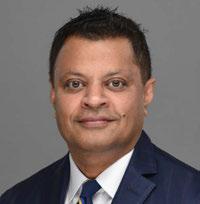
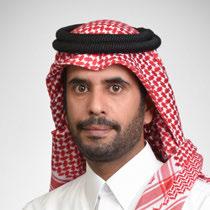

Ranjeev Menon: Integrating Corporate Social Responsibility into our business strategy



year. GWC’s influence is not limited to its commercial activities but extends to include the whole community, as the company implements a comprehensive strategy for environmental, social, and governance (ESG).”
In 2023, GWC achieved a unique milestone by securing a top 10 position in Forbes ‘Top 100 Middle East’s Sustainability Leaders’ in the logistics and transport category, underlining its unwavering dedication to sustainability.
GWC invests in several active measures to ensure more sustainable operations, such as paperless processes, vehicle route optimization, reduce-reuse-recycle initiatives, energy conservation (including natural and energy-saving lighting initiatives), and resource consumption optimization. Notably, GWC’s Regional Logistics Hub in Ras Bufontas Free Zone was developed in accordance with the GSAS standard.
The company is committed to promoting economic development in Qatar by boosting MSMEs growth. The first and second phases of Al Wukair Logistics Park have successfully attracted a significant number of micro, small, and medium-sized enterprises. Spreading across 1.5 million square metres, GWC Al Wukair Logistics Park is dedicated to light industry infrastructure required for the operational success of MSMEs. With various light industrial workshops, warehousing units, and open yards, the park has been designed to meet all types of warehousing and distribution requirements for sector-wide enterprises.
Al Wukair logistics park offers a one-stopshop for leasing a warehouse or workshop, company formation formalities, including applications for necessary permits, and logistics operations. Start-ups working with GWC benefit from years of local, regional and international experience, along with a global, integrated network. GWC’s deep, hard-earned knowledge of the local market makes Al Wukair Logistics Park the ideal destination for businesses to avail of and enjoy the best logistics infrastructure.



Addverb, a global robotics company, excels in tailored warehouse automation solutions, redefining innovation in the supply chain with intelligent robots driven by modular software and boosting a diverse product portfolio for end-to-end operational efficiency.
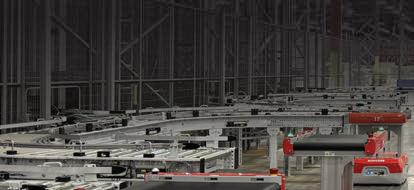


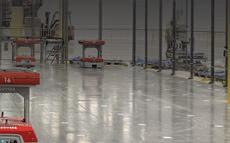







Oliver Wyman has released insights into the rapidly evolving landscape of Artificial Intelligence (AI), revealing significant opportunities that it presents, while also highlighting growing concerns surrounding its adoption. The findings, drawn from the Oliver Wyman Forum report “How Generative AI is Transforming Business and Society” and related surveys, paint a picture of a world both excited and cautious about the future of tech.
• The recent Oliver Wyman Forum survey “The New Growth Agenda: How CEOs are Navigating Emerging Shifts in Geopolitics, Trade, Technology, and People” reveals that 41% of CEOs from NYSE-listed companies are concerned about moving too slowly on AI, underscoring the critical importance of timely innovation in this space. Moreover, 96% of CEOs view AI as an opportunity, not a risk, according to the same survey.
• Some 68% of workers in the Kingdom use generative AI weekly compared to only 55% globally. And 93% of Saudis said generative AI is an essential tool at work, compared to 95% in the Middle East and 79% globally.
• The enthusiasm of individuals for AI in Saudi Arabia is matched by the government, which – along with other authorities in GCC countries including the UAE – is taking a leadership role in AI, placing the region in a prime position to leverage the technology for economic and societal gain.
Oliver Wyman, a global management consulting firm and a business of Marsh McLennan (NYSE: MMC), recently released insights into the rapidly evolving landscape of artificial intelligence (AI), revealing significant opportunities that AI presents, while also highlighting growing concerns surrounding its adoption, from the pace of development to existential threats from the technology. The findings, drawn from the Oliver Wyman Forum report “How Generative AI is Transforming Business and Society” and related surveys, paint a picture of a world both excited and cautious about the future of AI. Speaking ahead of the Global AI Summit hosted by the Saudi Data & AI Authority (SDAIA) in Riyadh on 10-12 September, Nick Studer, President and CEO for the Oliver Wyman Group, said: “While the transformative potential of AI
is immense, it is also clear that societies around the world are looking to their governments for leadership in areas including education and workforce development to fully harness these opportunities in a safe and ethical manner. With 39% of people across 20 countries advocating for governmentdriven AI initiatives, it’s crucial that we prepare our workforce for the changes ahead, while ensuring AI is developed and deployed responsibly.”
However, alongside this optimism there are some doubts among industry leaders about the pace of AI adoption. The recent Oliver Wyman Forum survey “The New Growth Agenda: How CEOs are Navigating Emerging Shifts in Geopolitics, Trade, Technology, and People” reveals that 41% of CEOs from NYSE-listed companies are concerned about moving too slowly on AI, underscoring the critical
importance of timely innovation in this space. Moreover, 96% of CEOs view AI as an opportunity, not a risk, according to the same survey. This high level of optimism among CEOs further emphasizes the potential that AI holds for businesses and the global economy.
Meanwhile, generative AI is particularly stirring the imagination of consumers worldwide. According to the report, 28% of global respondents believe that generative AI has the capacity to capture the depth of human emotion, pointing to its potential in areas such as entertainment and customer service. Despite this enthusiasm, the risks associated with AI are not lost on those at the forefront of its development. The same report reveals that 50% of AI researchers believe there’s a greater than 10% chance that AI could lead to human extinction – a sobering statistic that highlights the need for cautious and responsible AI development.
This is certainly not deterring workers in the Kingdom of Saudi Arabia from embracing generative AI. Indeed, according to the Oliver Wyman Forum AI report, some 68% of workers in the Kingdom use generative AI weekly compared to only 55% globally. And 93% of Saudis said generative AI is an essential tool at work, compared to 95% in the Middle East and 79% globally.
The enthusiasm of individuals for AI in Saudi Arabia is matched by the government, which – along with other authorities in GCC countries including the UAE – is taking a leadership role in AI, placing the region in a prime position to leverage the technology for economic and societal gain.
Saudi Arabia’s ambitious AI investment strategy further highlights the global movement behind AI development. According to The New York Times, the government of Saudi Arabia plans to invest $40 billion in AI, reflecting the country’s commitment to becoming a global AI leader.
The New York Times report added that representatives of Saudi Arabia’s Public Investment Fund (PIF) discussed a potential partnership with one of Silicon Valley’s leading venture capital firms, and other financiers. Such a move would align with the United States’s “Chip 4 Alliance”


“While the transformative potential of AI is immense, it is also clear that societies around the world are looking to their governments for leadership in areas including education and workforce development to fully harness these opportunities in a safe and ethical manner.”
Nick Studer, President and CEO of Oliver Wyman Group
initiative, a strategic partnership with Japan, South Korea, and Taiwan, which collectively control a significant share of the global semiconductor market, to build a sustainable semiconductor supply chain critical to AI technologies.
“The Middle East, and particularly the GCC, appears to be taking a confident stance in its embrace of AI, with governments committed to investing in, and deploying the technology,” said Jad Haddad, Global Head of Oliver Wyman Quotient, the firm’s AI offering. “At the same time, young and growing populations in the region are keen to use AI-based services at work and at home, spurring further investment and encouraging governments to persevere with their proactive stances.”
More than 80% of respondents in the Oliver Wyman Forum’s Global Consumer Sentiment and AI survey expressed a desire to use AI for various purposes, ranging from healthcare to financial planning and social connection, with Gen Z leading the charge.


“The Middle East, and particularly the GCC, appears to be taking a confident stance in its embrace of AI, with governments committed to investing in, and deploying the technology.”
Jad Haddad, Global Head of Oliver Wyman Quotient
Furthermore, the survey indicates that 63% of consumers expect autonomous buses and shuttles to be a reality within the next decade, while 66% foresee the arrival of autonomous taxis in the same timeframe. These expectations signal a significant transformation in how transportation will evolve, driven by AI.
The integration of AI into workplaces is not without challenges. The Oliver Wyman Forum AI report shows that 47% of employees who use AI are willing to continue using generative AI tools even if their employers were to forbid it. This statistic underscores the tension between workforce enthusiasm for AI and the need for clear guidelines and ethical considerations in its deployment.
“As AI continues to evolve, countries, companies and consumers are realizing the technology’s dual nature as both a driver of innovation and a source of significant concern. We need to make sure there are balanced approaches that foster AI’s benefits while carefully managing its risks,” Haddad concluded.
Procurement has long been at the forefront of business strategy, and with the rise of digital transformation, most companies are excited to have a front-row seat to see it evolving faster than ever before. The adoption of intelligent automation, AI integration, and other cuttingedge technologies is not only reshaping procurement processes but also driving unprecedented efficiencies.


Companies today are leveraging these technologies to streamline operations, cut costs, and unlock new strategic potential. But how exactly are these technologies being integrated into procurement, and what does the future hold for this digital transformation?
Digital transformation is more than just adopting new technologies; it’s about fundamentally changing how businesses operate to deliver more value, both now and in the future. For procurement, digital transformation offers the ability to automate repetitive tasks, improve supplier relationships, and provide greater transparency across the supply chain. According to a recent CIPS report, companies that implement a digital transformation strategy in procurement can achieve up to a 20% reduction in procurement costs and a 30% improvement in efficiency. More than

just a trend, digital transformation is now a competitive necessity.
As companies strive to enhance their procurement processes, several technology trends have emerged as game-changers. Here are five key trends that are currently shaping the procurement landscape: Integrating a digital transformation strategy:
Digital transformation adds value to your business. Adopting a digital transformation strategy can help you to attract the younger generation to your organisation and paves the way for staff to think more strategically.
Adopting artificial intelligence systems: Artificial intelligence is a fast-developing area and can be categorised in two ways;
- Rules-based automation where a machine can be programmed to follow a specific set of rules.
- Intelligent automation which is cognitive


Sam Achampong, Regional Director of CIPS Asia, Australasia, Middle East and Africa
technology that can self-learn and analyse historical patterns to make an operational decision.
Cybersecurity systems and protection:
Online security is a real threat to public and private sector organisations. Protecting data is the key to mitigating this global threat. Using big data to drive decisions: Big data is defined as the analysis of information of extreme size, diversity, and complexity. It increases transparency, insight and actional information that can lead to shorter procurement cycle times and a better understanding of behaviours. Blockchain infrastructure and transactions:
Blockchain is a secure ledger system, which tracks a product from source. A new ledger entry will then be built based on each transaction that takes place with the product. There are potential benefits for blockchain technology. One being that the ledger cannot be altered or changed by individuals, meaning consumers will have full visibility of the product back to source.
Digital transformation, bolstered by intelligent automation and AI, is revolutionising the procurement landscape. The integration of new technologies requires significant investment, not just in the tools themselves, but in the upskilling of staff and the redesign of processes. Companies must also navigate the complexities of data security, ethical AI use, and the evolving regulatory landscape.



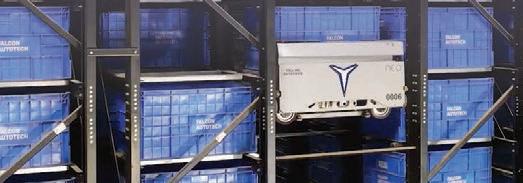
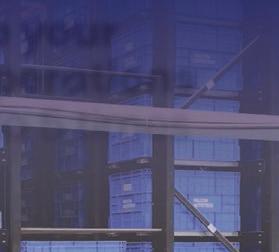


Falcon Autotech is a global intralogistics automation solutions company. With over 10 years of experience, Falcon has worked with some of the most innovative brands in E-Commerce, CEP, Fashion, Food/FMCG, Auto and Pharmaceutical Industries.

CONTACT US:
Email: salesenquiry@falconautoonline.com
Website: www.falconautotech.com

Addressing the challenges and finding solutions that would transform the Middle East & Africa (MEA) region into a world-class logistics hub.
In today’s digital age, cybersecurity is critical for the resilience of global supply chains. As businesses embrace technology to enhance efficiency, they also face growing cyber threats. Protecting sensitive data, mitigating vendor risks, and ensuring robust security measures are now essential for sustaining global operations and maintaining customer trust.





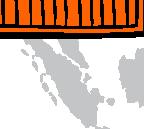

In today’s interconnected world, supply chains are crucial in every industry ensuring that products and services reach consumers seamlessly. Organisations can be seen as an intricate network of cooperating nodes where each one is vital. To respond to ever demanding customer needs, the pressure to make supply chains faster and leaner is ever present. Advanced integrated systems allow smoother management of the organisation. Embedded in all these changes is technology as the main catalyst and enabler to make this happens. Still, with organisations becoming technology driven, the cyber security risks are on the rise. A large multinational corporation depending on the virtual business model will be subject to possible virtual security threats. The protection of confidential data and the assurance of security of these types of infrastructures is no longer simply an operational concern; It is crucial for business sustainability.
Security threats include any vulnerabilities or cyber-attacks that compromise the integrity of sensitive data and data protection. Among the most common risks to supply chain security are third-party vendor risks. These risks often arise due to weak security practices and inadequate security strategies. As organisations undergo digital transformation, the increased adoption of digital solutions creates more entry points for cybercriminals. These vulnerabilities may stem from software issues such as zero-day exploits or overlooked configuration errors. If unaddressed, digital risks can escalate into serious supply chain threats, including ransomware attacks, security breaches or process disruptions. The global supply chain security frauds are not limited to suppliers. In fact, increasing number of breaches of health information has originated from vendors who handle sensitive patient data. Also, supply chain fraud known as vendor fraud, is when cybercriminals impersonate a contractor and change the account and payment address of the said contractor. Such Uber attacks are rarely reported as they are very hard to track as these are often put or masked behind the curtain of


Shereen
social engineering where criminals utilise AI actors, forwards, voice mails etc.
While companies within the UAE have been embracing digital transformation, the supply chain information security risk continues to persist and remarkably grows. This is owing to the fact that the region is strategic in global commerce and as such there are rapid changes in technological development making it vital to ensure securing supply chain data. Security threats affect every aspect of businesses, but efforts are being made in this region to prevent cyberattacks against supply chains. Protection of supply chain data will not only protect the economic benefits of the region but also enhance and improve the region’s ability to serve as a reliable hub for global traders. Cooperation with the external partners is also very important. Some supply chains include partnerships with third parties such as suppliers or logistics contractors who have a varying degree of security levels. The need to communicate and define protective measures against data abuse cannot be overstated. These third parties should be contractually obligated to meet the requirements for international security emplaced with regular checks for the performance of these measures. Efforts should also be placed on educating the human resources to limit any internal compromise. It is necessary to periodically instruct and guide employees,
contractors, and suppliers on best practices for cybersecurity, including identification of phishing emails and password handling. An adequately educated workforce is among the most formidable barriers to cyber attacking strategies. According to a report by Frost & Sullivan in 2023, the UAE prevented more than 50,000 cyberattacks every day, highlighting another achievement in the region’s strides in securing the digital space. It also stated that during the first quarter of the year, the UAE successfully stopped over 71 million attempted cyberattacks. This figure shows how high the threat level is increasing against the UAE and the wider GCC region and calls for quick steps to be taken to mitigate this risk with an advanced cyber policies and measures. As UAE is building a more resilient economic cybersecurity ecosystem, the region is still emerging to becoming a global frontrunner in the area. It places itself at the centre with a progressive vision in regulatory compliance, cybersecurity skills development, and supply chain security.
For sustainable cybersecurity, companies also need to invest and develop an integrated cybersecurity strategy that offers a new structure and architecture of the information security system. This system should not only be limited to the internal environment of the firm but to the external physical and technological ecosystem that ensures maximum safety of all data and assets. This approach contributes not only to the elimination of internal weaknesses but also to the reinforcement of the elements of external protection against third parties and new kinds of attackers. A balanced and well thought cybersecurity framework that promotes resilience and sustains safe digital transformations without endangering sensitive data. It is important for organisations to properly manage and mitigate the cybersecurity risks and eliminates any potential vulnerabilities that keeps their clients’ trust and expands their market in a complex global digital business ecosystem. Such preparedness is extremely important in today’s intricate risky landscape.
Within the rapidly evolving manufacturing industry, key players are increasingly digitising to drive innovation, streamline processes, embrace sustainability, reduce costs and maintain a competitive edge.
Software-as-a-Service (SaaS) has become a key tool to address the above needs and positively transform the industry, offering benefits that cannot be achieved through traditional software models.
Customer expectations for products and services have grown more complex than ever, and businesses need to innovate unique methods to stay competitive. Cloud-based manufacturing solutions and SaaS tools offer enhanced flexibility and efficiency, enabling companies to meet these demands and stay ahead in the market.
Manufacturers can use SaaS to gain better visibility into their supply chains, allowing them to predict demand, manage inventories more effectively, reduce risks, and cut costs through actionable insights.
The adoption of SaaS solutions across diverse industries is driving the growth of the global Software as a Service (SaaS) market, which is poised to jump from USD 317.55 billion in 2024 to USD 1.2 trillion by 2032, at a CAGR of 18.4 per cent. This growth is further underpinned by the development of Artificial Intelligence (AI) and Machine Learning (ML), which are often integrated into SaaS applications to enhance their capabilities and offer better insights to users. It is also estimated that 85 per cent of business apps will be SaaS-based by 2025, as organisations aim to streamline operations and remain competitive in rapidly evolving markets.
Supply chain management highlights the pressing need for digital transformation in manufacturing. Over the years, many disruptions have urged a complete rethinking of logistics. This has accelerated the adoption of SaaS solutions, which are now essential for manufacturers to operate smoothly and remain competitive, even as many of these challenges have eased.


Piyush Malviya, Vice President and Head of Moglix, MEA
SaaS solutions are highly cost-effective, in comparison to traditional software that requires substantial upfront investment for licences, hardware, and IT infrastructure. Since these solutions are subscriptionbased, businesses can cut down on initial capital expenditures. It also provides predictable and recurring costs that are easier to budget, ensuring enhanced access to manufacturers of all sizes. It levels the playing field and improves competitive positioning even for small and mediumsized enterprises.
With SaaS, businesses can adjust software usage to align with their specific requirements when expanding, downsizing, or dealing with seasonal fluctuations in demand, without additional investments. It can also be accessed from around the globe by connecting to the internet, facilitating remote work and multi-size operations. This is an essential feature that will ensure seamless coordination between diverse
regions and time zones.
Since SaaS solutions are maintained and updated by the provider, manufacturers do not have to handle complex software updates, patches, or security enhancements. Companies can also seamlessly access latest software features and updates without the downtime and disruptions associated with traditional software update processes. This helps ensure that the software is always up-to-date with latest security protocols installed, reducing the risk of cyber vulnerabilities. These solutions also offer deep insights into key production processes, supply chain dynamics, and market trends.
More importantly, SaaS providers across the globe are investing in robust security measures such as encryption, multi-factor authentication, and regular audits, to facilitate protection of sensitive data. This also includes comprehensive disaster recovery plans to efficiently tackle potential power outages or cyber-attacks. These high-level security features, in compliance with regulations like GDPR and CCPA, ensure round-the-clock protection of critical business data.
On the sustainability front, SaaS solutions are helping manufacturers optimise their energy usage, reduce waste, and manage resources more effectively. Today, key SaaS players adhere to green IT practices by using energy-efficient data centres and cutting down carbon footprint.
SaaS solutions are making waves as critical enablers of transformation in the manufacturing industry. Manufacturing companies that hope to gain a competitive advantage in markets should incorporate these influential tools as a critical facet of their long-term strategy. By adopting advanced technologies like SaaS, businesses can pioneer innovation and remain resilient against capricious market conditions.
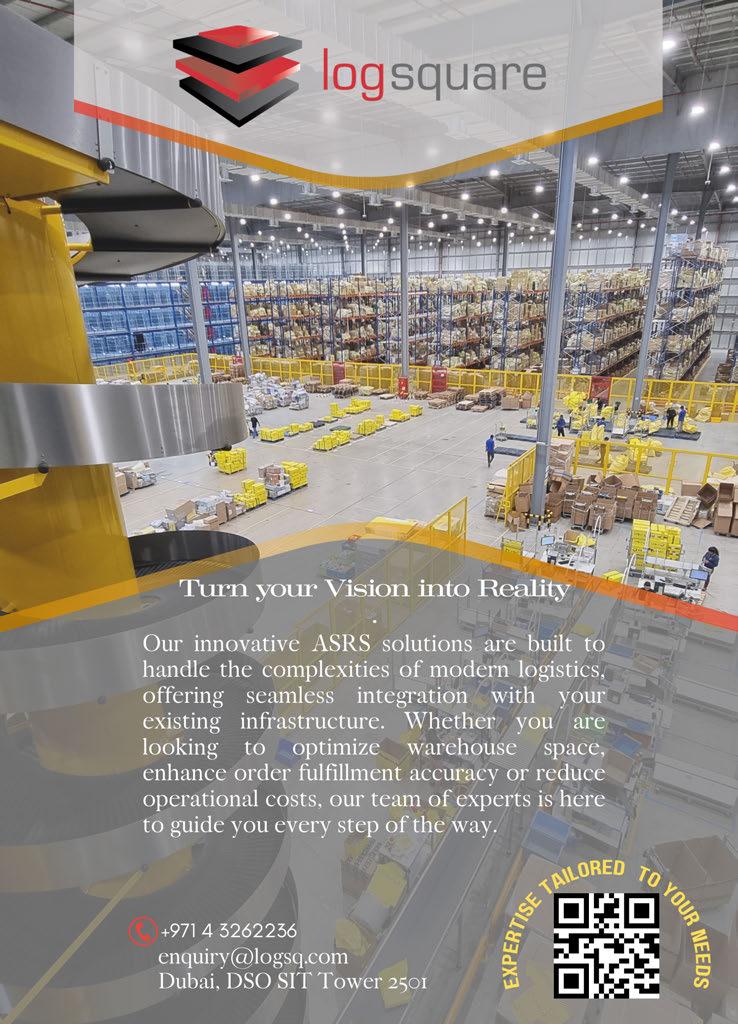
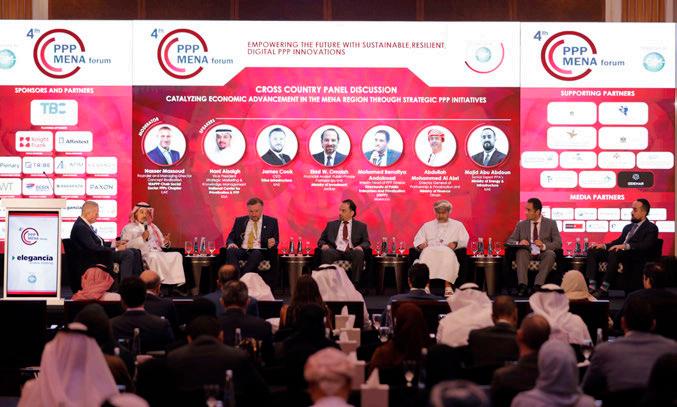
The 4th PPP (Public-Private Partnership) MENA (Middle East and North Africa) Forum was held on 10-11 September, bringing together senior regulators, policymakers, supply chain and industry leaders from across the region. Held at the Jumeirah Emirates Towers in Dubai, the event began with an insightful welcome address by Great Minds Event Management, followed by opening remarks from Nasser Massoud, WAPPP Chair for Social Sector PPPs Chapter, UAE.
The forum’s opening session, a crosscountry panel discussion, set the stage for the two day forum’s agenda by focusing on catalysing economic advancement in the MENA region through strategic PPP initiatives.
Leaders from KSA, UAE, Oman, Jordan, and Morocco exchanged valuable insights on scaling PPP projects, fostering SouthSouth cooperation, and attracting foreign direct investment (FDI). Attendees gained key takeaways on structuring innovative, scalable solutions and enhancing cross-
border partnerships.
Other highlights included a keynote on Dubai Municipality’s PPP projects and panel discussions on social infrastructure PPPs in the GCC, as well as a healthcare impact session that explored lessons from the Asia-Pacific region to maximise the value of healthcare PPPs in MENA. One of the sessions focused on the Social Sector. Public-Private Partnerships as a key enables for development of the sports sector in MENA region.
This high-profile gathering attracted
policymakers, investors, business leaders, and other influential stakeholders dedicated to advancing PPP initiatives across the Middle East and North Africa (MENA) region. The forum aims to showcase and announce groundbreaking projects from these key regions.
The event was supported by Abu Dhabi Investment Office (ADIO), Kuwait Authority for Partnership Projects (KAPP), NCP Saudi Arabia and various local and international firms specializing in finance, legal, and consultancy services.






























• Partnership with Dubai Airports and ENOC introduces biodiesel as the exclusive fuel for all non-electric vehicles
• Initiative cuts CO2e emissions by 3,500 tonnes annually
The leading global air and travel services provider dnata, has announced a major milestone in its environmental sustainability journey.
All of the company’s non-electric airside vehicles and ground support equipment (GSE) are now operating exclusively on a biodiesel blend at its biggest operational hub in Dubai.
This significant step, taken in partnership with Dubai Airports and the Emirates National Oil Company Group (ENOC), is projected to cut CO₂ equivalent emissions
by over 3,500 tonnes annually over the lifecycle of the fuel consumed by dnata’s fleet. This is equivalent to over 21 million kilometres driven by an average dieselpowered car.
The initiative has been gradually rolled out across dnata’s extensive ground handling and cargo operations at the two Dubai airports, Dubai International (DXB) and Al Maktoum - Dubai World Central (DWC). It involves a total of 2,500 vehicles, which support the safe and timely operations of over 220,000 flights annually.
dnata has been already using a blend of biodiesel across its landside fleets at dnata logistics, City Sightseeing Tours, Arabian Adventures, and Alpha Flight Services in the UAE since last summer.
Steve Allen, CEO of dnata Group, said: “Our latest initiative to switch all our non-electric airside vehicles to biodiesel in Dubai is a big step forward in our decarbonisation journey. It demonstrates our dedication to cutting emissions, a core part of our environmental strategy, while maintaining the highest level of quality and safety across our operations.
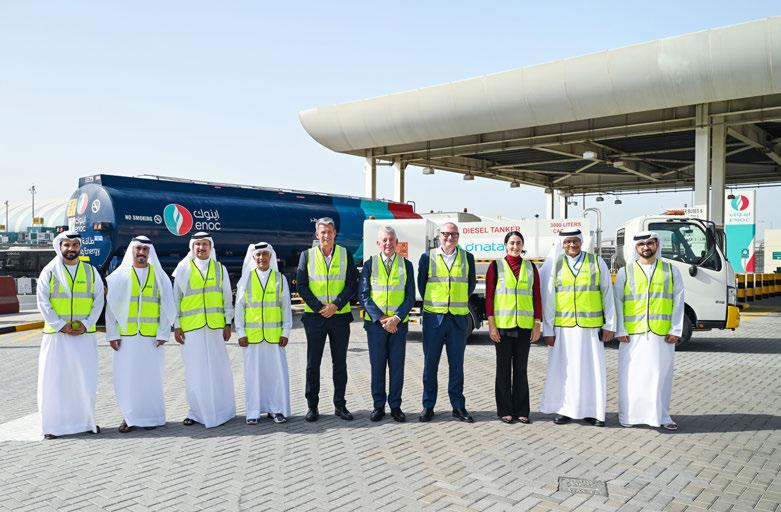
This achievement wouldn’t be possible without the strong collaboration with Dubai Airports and ENOC, who share our commitment to contributing to the UAE Government’s Net Zero 2050 strategic initiative. We look forward to continuing our partnership to further reduce our environmental footprint and make a positive impact on the aviation industry.”
Paul Griffiths, CEO of Dubai Airports, added, “Sustainability in aviation requires everyone to pitch in, and as the airport operator, we’re committed to driving change. Our partnership with dnata and ENOC to introduce biodiesel highlights how collaboration can lead to real progress. While sector-wide solutions are crucial, airports must also score quick wins on the ground.
This shift will benefit all operators of vehicles and equipment operating airside by replacing traditional diesel with a cleaner alternative. Given the significant size of dnata’s fleet both at DXB and DWC, we know this project is vital for a broader sustainable ground support equipment (GSE) strategy, and we’re proud to contribute to reducing dnata’s emissions and setting a new standard for the aviation industry.”
ENOC Group has provided dedicated biofuel trucks and fuel stations to support dnata’s transition into biodiesel in Dubai.
His Excellency Saif Humaid Al Falasi, Group CEO at ENOC, said, “We are delighted to continue our ongoing cooperation with dnata by delivering biodiesel to their airside fleet and ground support equipment (GSE). This partnership underscores our commitment to expedite the UAE’s transition to clean and sustainable energy sources under the National Policy on Biofuels. We look forward to enabling clean energy alternatives to further diversify the national energy mix.”
Since its foundation in 1959, dnata has been playing an important role in the UAE’s aviation industry. Having mirrored Dubai’s growth, the dnata Group presently employs over 23,000 staff and serves over 190 passenger and cargo airlines across the country. Besides its range of air services, dnata operates all airside fuel stations and mobile refuelling services at both Dubai airports.
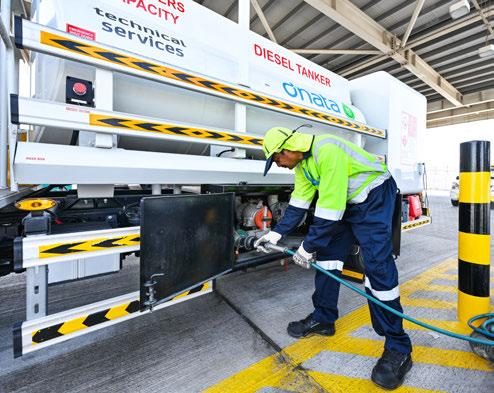
dnata recently reported significant improvements across key environmental performance metrics for the financial year 2023-24. As a result of its consistent approach and initiatives, the company cut the carbon intensity of its operations by over 8%, 22% and 26% across its airport operations, travel and catering businesses, respectively. All data has been validated by Verifavia, an independent accredited environmental verification and auditing body.
dnata minimises emissions across its businesses using renewable energy where available, and in some markets, such as the UK and Ireland, it exclusively procures solar and wind energy. Most recently, it has installed solar panels in Pakistan and the Philippines to avoid consuming fossilfuel powered electricity across several facilities. In the financial year 2023-24, dnata generated 21% more renewable energy and
purchased 191% more renewable electricity, than in the same period the previous year.
dnata consistently invests in its modern fleet to improve environmental efficiency. Its fleet strategy commits to phasing out diesel-operated engines and switching to hybrid, electric, or hydrogen wherever airports have provided the necessary infrastructure. As a result of its investments in recent years, 65% of dnata’s fleet is now electric in the Netherlands, 44% in Italy, 40% in the UK, and 39% in Switzerland.
The group also maintains a strong focus on minimising fuel consumption. It monitors the consumption of fuel across its fleet of ground support equipment (GSE) using Vehicle Tracking Management systems; conducts logistics mapping exercises to ensure minimal distances are travelled airside; and optimises shifts and parking slots to avoid excessive fuel burn.
In addition, it tracks the behaviour of drivers, including vehicle idling times, and has key performance indicators linked to the environmental management system. dnata promotes more responsible driver behaviour through education, awareness and training.
Turkish Cargo, the air cargo carrier of Turkish Airlines, has received the IATA Smart Facility Operational Capacity Certification.
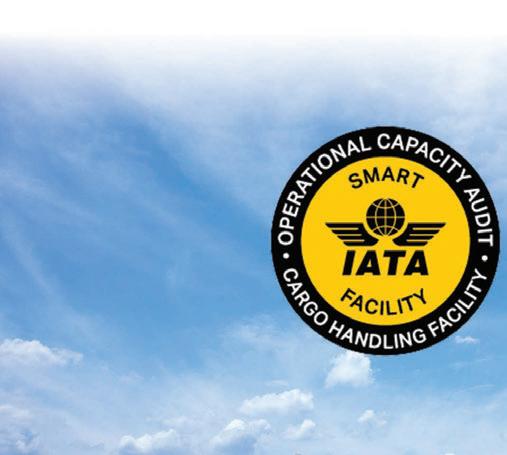
Awarded for the SMARTIST Terminal, it confirms that Turkish Cargo’s operational procedures comply with IATA Regulations.
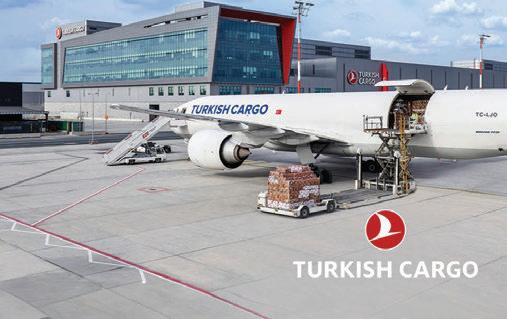

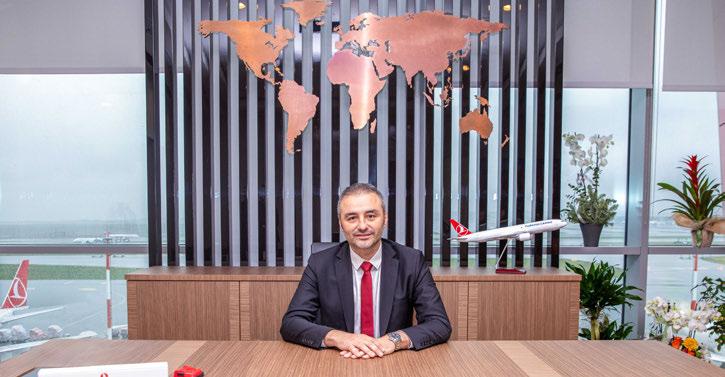
At SMARTIST, one of the state-ofthe-art cargo facilities in the world, cargo is stored and transferred using a computer-controlled Automated Storage and Retrieval System (ASRS), eliminating the need for an operator or forklift. Additionally, ULD storage processes are automated through the ULD Storage System. These smart storage management systems not only expedite operational
processes by allocating the workforce to more value-added tasks but also minimize potential risks and reduce costs.
Commenting on the certification, Ali Türk, the Chief Cargo Officer of Turkish Airlines, said; “With a focus on maximizing customer satisfaction, Turkish Cargo aims to become the industry leader by 2033. This vision guides all our investments and business processes. The IATA Smart Facility Operational
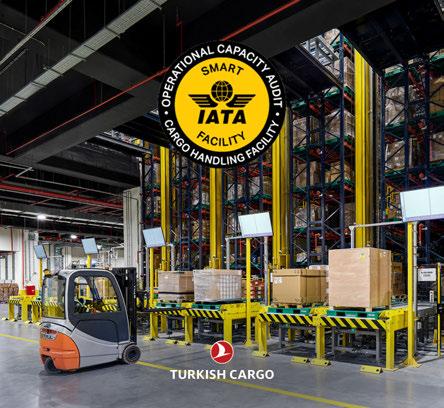
Capacity Certification is a significant endorsement of our brand, as it not only verifies that SMARTIST meets international quality standards but also demonstrates that our digital solutions, smart systems, operations, and human resources are all aligned with our future goals.”
“We are pleased to announce that Turkish Cargo has achieved IATA’s Smart Facility Operational Capacity (SFOC) Certification for its SMARTIST Terminal. This certification highlights Turkish Cargo’s commitment to operational excellence, ensuring that all types of cargo are handled seamlessly, securely, and in full compliance with global standards. The SMARTIST Terminal sets a high bar for cargo facilities worldwide, and SFOC Certification reinforces Turkish Cargo’s vision of leading through maximizing customer satisfaction,” said Brendan Sullivan, IATA’s Global Head of Cargo.
The IATA SFOC Certification is granted following detailed examinations conducted by independent auditors according to IATA standards. This prestigious certification demonstrates the compliance of handling and storage processes, from the acceptance of all special and general cargo to their loading onto the aircraft, with global standards. As a result, it enhances the operational efficiency and competitive strength of the facilities, ultimately boosting customer satisfaction.
Hyperloop Transportation Technologies (HyperloopTT) and Aerospace Times Feiping have been announced as the key partners for the Transportation & Mobility section at Logimotion 2024
• The Transportation & Mobility section is a platform for local and international organisations to showcase cutting-edge innovations in ground transportation, air, maritime, rail, and intermodal transportation
• The inaugural edition of Logimotion will take place at the Dubai World Trade Centre from 10-11 December 2024
Hyperloop Transportation Technologies (HyperloopTT), a US-headquartered high-speed transportation pioneer and China-based aircraft manufacturing company Aerospace Times Feiping have joined forces with Logimotion to become the main partners for the event’s Transportation & Mobility section. The inaugural edition of Logimotion will take place at Dubai World Trade Centre from 10 to 11 December 2024.
Logimotion 2024 is a first-of-its-kind event that will bring together global leaders in mobility and logistics in the central hub of Dubai. The event is tailored to showcase technologies and solutions within these vital sectors, while sharing the latest industry insights through an immersive conference programme. The event will provide unparalleled opportunities for attendees to network with industry professionals, gain knowledge from thought leaders, and catalyse growth in the mobility and logistics sectors.
Dishan Isaac, Exhibition Director, Logimotion said: “We are delighted to welcome HyperloopTT and Aerospace Times Feiping as partners for the Transportation & Mobility Section at Logimotion. The brightest minds in the industry will come together at this event to help shape a more sustainable, interconnected future, and these two organisations have a pivotal role to play in this process.”




Commenting on the partnership, Andrés de León, Chief Executive Officer at HyperloopTT added: “Logimotion promises to become a must-attend fixture in the global logistics and mobility industry’s calendar, so we are extremely proud to be involved as a main partner for the Transportation & Mobility section at the first-ever edition. Global collaboration lies at the heart of HyperloopTT, which is why we are so excited to tap into the show’s spirit of connectivity and innovation as we share our vision for the future of transportation.”
Hyperloops are tube-based transportation systems designed to move goods and people at ‘airplane speeds’ safely, efficiently and sustainably. The introduction of hyperloops would reduce travel time between city centres and logistics hubs from hours to minutes, promoting widespread economic expansion and replacing contemporary emissions-heavy methods of transportation Founded in 2013, HyperloopTT is a leading transportation and technology licensing company focused on the advancement of high-speed transit through the hyperloop. To date, the company has developed a

full-scale test system, a comprehensive insurance framework and robust certification guidelines for its innovations.
The systems being developed by HyperloopTT have the potential to revolutionise the transportation sector with ultra-fast, sustainable and energyefficient transit solutions. In addition to the company’s showcase at Logimotion, de León will address attendees at the TransMobility Forum, which will explore the next generation of mobility.
Aerospace Times Feiping belongs to the China Aerospace Science and Technology Corporation and is currently the world’s largest high-tech enterprise for logistics Unmanned Aerial Vehicle (UAV) systems and provides R&D, production and manufacturing.
At Logimotion 2024, Aerospace Feipeng Co. will showcase its UAV portfolio. This includes, among others, the FP-985 large fixed-wing aircraft, which has a loading capacity of 1700kg and offers features such as the capacity to operate during the day and night, in sandstorms, hightemperature environments and solar radiation resistance along with offering large cargo capacities and high efficiency.


Released data for July 2024 global aircargo markets show continuing strong annual growth in demand. Global Supply Chain investigates.
The International Air Transport Association (IATA) has stated that total demand, measured in cargo tonne-kilometers (CTKs*), rose by 13.6% compared to July 2023 levels (14.3% for international operations). This is the 8th consecutive month of double-digit year-on-year growth, with overall levels reaching heights not seen since the record peaks of 2021.




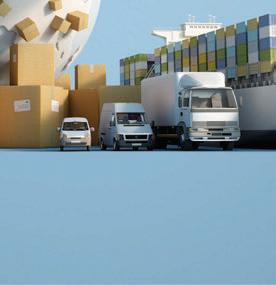

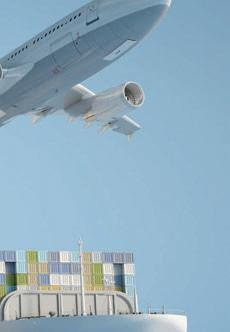

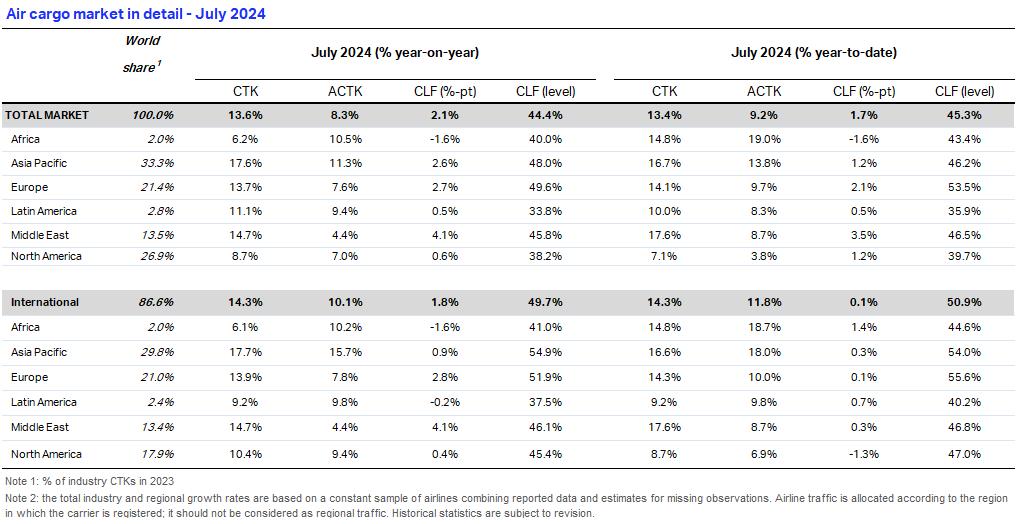
Capacity, measured in available cargo tonne-kilometers (ACTKs), increased by 8.3% compared to July 2023 (10.1% for international operations). This was largely related to the growth in international belly capacity, which rose 12.8% on the strength of passenger markets and balancing the 6.9% growth of international freighter capacity. It should be noted that the increase in belly capacity is the lowest in 40 months whereas the growth in freighter capacity is the highest since an exceptional jump was recorded in January 2024.
There are several factors in the operating environment which should be noted:
In July, the Purchasing Managers Index (PMIs) for global manufacturing output indicated expansion at 50.2. Meanwhile, the global new export orders PMI continued to hover below the 50-mark at 49.4, a marker for contraction.
Industrial production stayed level in July month-on-month and global cross-border trade increased 0.7%.
Inflation remained relatively stable in July in the US, Japan, and the EU, with inflation rates of 2.9%, 2.8%, and 2.8%, respectively.
Meanwhile, China’s inflation rate increased 0.3 percentage points to 0.6%, the highest level in five months.
Asia-Pacific airlines saw 17.6% year-on-year demand growth for air cargo in July – the strongest of all regions. Demand on the Within-Asia trade lane grew by 19.8% year-on-year, while the Europe-Asia, Middle East-Asia, and Asia-Africa trade lanes rose by 17.9%, 15.9% and 15.4% respectively. Capacity increased by 11.3% year-on-year.
Middle Eastern carriers saw 14.7% yearon-year demand growth for air cargo in July. As mentioned above, the Middle East–Europe trade lane performed particularly well surging 32.2%, ahead of Middle EastAsia which grew by 15.9% year-on-year. July capacity increased 4.4% year-on-year.
North American carriers saw 8.7% yearon-year demand growth for air cargo in July. Growth was hampered in part by flight cancelations and airport closures in the US and the Caribbean in relation to Hurricane Beryl. Demand on the Asia-North America trade lane, the largest trade lane by volume,
grew by 10.8% year-on-year, while the North America-Europe route saw a modest increase of 5.3%. July capacity increased by 7.0% year-on-year.
European carriers saw 13.7% year-onyear demand growth for air cargo in July. The Middle East–Europe trade lane led growth, up 32.2%, maintaining a streak of double-digit annual growth that originated in September 2023. The Europe–Asia route, the second largest market, was up 17.9%. Within Europe also saw double-digit growth, up 15.5%. July capacity increased 7.6% year-on-year.
Latin American carriers saw 11.1% yearon-year demand growth for air cargo in July. As with North American carriers, growth was hampered in part by flight cancelations and airport closures in the US and the Caribbean related to Hurricane Beryl. Capacity increased 9.4% year-on-year.
IATA Sustainability & Economics economics@iata.org 28 August 2024
African airlines saw 6.2% year-on-year demand growth for air cargo in July – the lowest of all regions and their lowest recorded figure in 2024. Demand on the Africa–Asia market increased by 15.4% compared to July 2023. July capacity increased by 10.5% year-on-year.
IATA Economics Consulting To find out more about our tailored economics consulting solutions, visit: www.iata.org/consulting

The International Air Cargo Association (TIACA) has stated that the ACF 2024 that will be held in Miami, November 11-14, 2024 is being designed to be more than just an exhibition by adding unique opportunities to connect with industry peers and ensure business developments find their spotlight.
The ACF 2024 has been designed to be filled with plenty of opportunities for attendees to get together to do business, network and also have some fun.
Golf Tournament, November 11th
The golf tournament scheduled for the morning of November 11th at the Miami Beach Convention Center is set to bring together attendees that enjoy a good game of golf and offers opportunities to network with each other.
Official Welcome Reception, November 11th
The Official Welcome Reception will provide the perfect setting to engage with colleagues and friends, old and new on the MBCC rooftop offering great sunset views across South Beach.
Connecting Cargo Reception, November 13th
The Connecting Cargo reception will be held amidst the beautiful backdrop of the Miami Beach Botanical Gardens, located right across the street from the MBCC, allowing attendees to connect with each other in a natural and relaxed environment.
Yoga at Sunrise, November 12th and November 13th
Attendees can start their mornings on the right footing with a sunrise yoga session held on the sand at the Sagamore Art Hotel on Miami Beach.
A business/meeting management and networking tool is available to enable you to connect and engage with more new business partners. This offers exhibitors a unique opportunity to identify and invite
“When the Board mandated the team to provide a worldclass event, we could not have envisioned all that has been set in place to enhance the attendee experience. We are very proud to kick off the ACF 2024 with these opportunities and are sure that attendees will find the event exciting and flush with opportunities to do business and connect with each other.”
Steven Polmans, TIACA Chair



attendees to visit them at their booth. We have also made the tool available for individual attendees to invite others for meetings at a dedicated meeting space.
The Spotlight Stage has been designed to compliment the world class conference program, by providing the opportunity for organizations to present what’s new with their business on the exhibition floor. A full

“Our team has done an excellent job with ensuring that the ACF 2024 is more than just an event but an experience. The ACF 2024 offers so many more unique activities for our guests that are more than just the usual 3-day exhibition and conference. We are all in Miami to do business but that doesn’t mean, we can’t have a little fun.”
Glyn Hughes, Director General
schedule of presentations and description of what will be showcased will be made available to all attendees through the website and event app.
To help you relax and enjoy the beautiful environment, the team has identified some great activities to do while you are in Miami, whether ahead of the event or after there is plenty to do in South Florida.
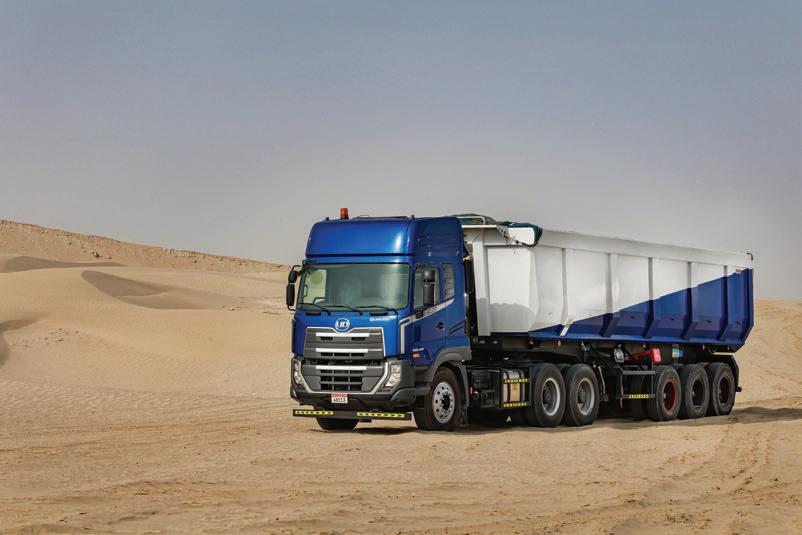


• Etihad Cargo and SF Airlines have announced a project to establish a first-of-its-kind joint venture with the aim of promoting economic and trade cooperation and enhancing global logistics and connectivity.
• This collaboration supports Abu Dhabi’s ambition of becoming a global logistics hub, contributing to the economic growth of the UAE and China while positioning both nations as key players in the global logistics industry.
Etihad Cargo, the cargo and logistics arm of Etihad Airways, and SF Airlines, a subsidiary of SF Holding, have announced their shared commitment to a project that will establish a landmark joint venture, marking an unprecedented milestone in the 40-year history of diplomatic relations between the United Arab Emirates (UAE) and China. In a significant meeting at SF Airlines’ headquarters in Shenzhen on 18 September, key representatives from both airlines convened to formalise their intention to establish a joint venture. Present at the meeting were Mohammed Ali Al Shorafa, Chairman of Etihad Airways; Mansour Al Mulla, Vice Chairman of Etihad Airways; Antonoaldo Neves, CEO of Etihad Airways; Stanislas Brun, Vice President Cargo of Etihad Cargo; Leonard Rodrigues, Director of Revenue Management & Network Planning of Etihad Cargo; and Wang Wei, Chairman of SF Holding; Li Sheng, Vice President of SF Group and Chairman of SF Airlines; and Alex Ho, CFO of SF Group. This joint venture project builds on the already successful partnership between Etihad Cargo and SF Airlines, which has significantly enhanced connectivity and capacity between China, the UAE, and global markets. The current collaboration has seen both airlines sharing capacity to improve global trade routes, a relationship that has been mutually beneficial for both
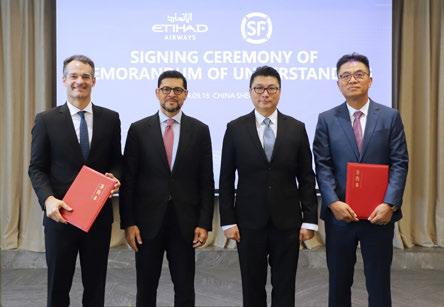
airlines and their customers.
The newly announced joint venture project will take this collaboration to unprecedented heights. Beyond capacity sharing, this partnership represents a full strategic alignment between Etihad Cargo and SF Airlines, combining their strengths to offer a unified, comprehensive logistics solution to customers worldwide.
“This historic joint venture is a true testament to the robust and growing relationship between the UAE and China,” said Mohammed Ali Al Shorafa, Chairman of Etihad Airways. “Etihad is excited to embark on this new journey with SF Airlines, which will enable both airlines to provide even more connectivity, flexibility, and speed to customers for e-commerce and traditional air cargo verticals.”
Antonoaldo Neves, CEO of Etihad Airways, highlighted the importance of this joint venture in supporting Abu Dhabi’s strategic ambitions: “As the national carrier of the UAE, Etihad Airways is deeply committed to supporting Abu Dhabi’s vision of becoming a global logistics and express hub. This joint venture with SF Airlines is a critical step in realising that vision.”
Key aspects of the joint venture include increased aircraft capacity, improved transit times, interconnected networks and the expanded distribution of SF Express’s international express services. These enhancements will offer SF Airlines and its customers greater flexibility and faster European connections. Additionally, the partnership will expand the number of frequencies, hubs, and destinations served, leading to smoother transitions and more efficient operations.
Wang Wei, Chairman of SF Holding, said: “This joint venture is a pioneering development in air cargo logistics between China and the UAE. By joining forces with Etihad Cargo, we are setting new standards for the industry, particularly in response to the rising demand for e-commerce, airmail, and parcel delivery. This is a long-term commitment to enhancing the quality and reliability of our operations.”
The collaboration will focus on integrating the customer service of Etihad Cargo with the extensive capacity and reach of SF Airlines, creating a synergy that is expected to significantly boost the potential of UAE-China trade routes.

Customers can select three options Q-Climate, Q-Plus and Q-Prime to elevate their shipment’s journey
Qatar Airways Cargo has announced the launch of AirPlus Solutions, offering enhanced services for various cargo products. Customers can now choose from three options; Q-Climate, Q-Plus, and Q-Prime to elevate their shipment’s journey.
Mark Drusch, Chief Officer Cargo at Qatar Airways Cargo, stated, “As the world’s leading cargo carrier, we are committed to continuously innovating our product offerings. We recognize that our customers have unique requirements and often need greater flexibility. With the launch of AirPlus Solutions, we are providing tailored options that best meet our customers’ needs, while delivering our best -in s-class service.”
Q-Climate: Provides temperature-control for additional product categories, ensuring a seamless cool chain and ramp protection against external weather elements and is applicable to general cargo and vulnerable cargo. Customers can select from three standard temperature ranges: COL (+2°C to +8°C), CRT (+15°C to +25°C), or ERT (+2°C to +25°C).
Q-Plus: Offers prioritised capacity for timesensitive shipments, ensuring high-priority
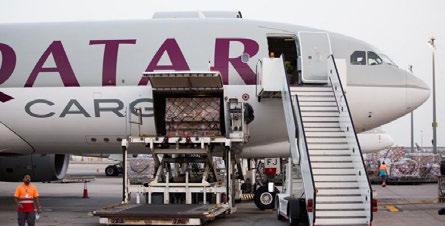
handling on confirmed flights or the next available flight if the requested flight can no longer accept bookings. Available as an add-on for Qatar Airways Cargo’s General Cargo, SecureLift (Vulnerable Cargo), Fresh Care (perishable cargo), and Drive (automobiles) products.
Q-Prime: Guarantees urgent shipments needing guaranteed uplift with prioritised processing, best or preferred connections, and a money-back guarantee if the shipment does not fly as confirmed. Q-Prime can also be used to gain capacity on full flights in urgent cases, where possible. The Control Tower monitors the shipment throughout its journey proactively solving possible disruptions. Available as an add-on for Qatar Airways Cargo’s General Cargo, SecureLift (Vulnerable and Valuable Cargo), Fresh (perishable cargo), and Drive products ( automobiles).
All AirPlus Solutions can be booked via Qatar Airways Cargo’s Digital Lounge, external digital marketplaces, or through local sales representatives. The solutions are available on most online routes and follow the usual booking cut-off times per origin.
Organiser extends final call for flying demos
n The organisers of the upcoming AIRTAXI World Congress are joining forces with with official Air Chateau and Unified Aviation to deliver a unique Market Showcase to the final day of the Congress on 10 October 2024. eVTOL companies have been given a deadline to confirm their participation and join the line up.
The fifth annual edition of AIRTAXI World Congress is the only Advanced Air Mobility (AAM)-focused event enabling OEMs to connect and engage with the most diverse global audience of airlines, operators, airports, suppliers, analysts, media, tourism boards, regulators, investors, and potential aircraft buyers.
Taking place at the Air Chateau Dubai Helipark, VIP Observers from airlines and new start-up air taxi operators, plus many more decision makers, will be treated to a flying display which will be focused on operations in six key markets: Saudi Arabia, The Maldives, India, the Aegean islands, London and the UK. Through this unique format, Showcase will ultimately help to generate interest and orders for AIRTAXI manufacturers.

“We are excited to present our first ever Market Showcase, said AIRTAXI World Congress President Mike Howarth. “We are able to accept at least one more company to fly but they must reach out immediately to meet permit application deadline.”
The Market Showcase, runs from 10 am to 3 pm including lunch on the final day of the Congress at the Air Chateau Dubai Helipark, featuring:
• Dubai Special Market Showcase
– Dubai Test Flights
• India Market Showcase
– Truly Unlimited Potential
• Island Nations Showcase
– Focus on Maldives and Aegean
• UK Market Showcase
– A Virtually Untapped Opportunity
• 2025 Market Showcase Preview
• UAE Market Showcase
– 2025 Set to be the year?
Airlines and start-up operators will include Saudi Arabian Airlines, Maldivian, Jet Set Go, United Airlines, NASJET, Emirates, Interglobe/IndiGo, Gulf Air, Air India, Freebird Airlines, LunaJets, Philippines Airlines, Etihad, Turkish Airlines, and Thai Airways.
AIRTAXI World Congress will be held from 07-09 October at the Grand Hyatt Dubai Conference & Exhibition Centre.
n National Transportation Solutions Company (NTSC), Saudi Bulk Transport (SBT- SENDDEX), and Electromin have come together to form a pivotal co-operation aimed at transforming the landscape of sustainable transportation. The collaboration is a significant step towards realizing Saudi Arabia’s Vision 2030, which prioritizes the shift towards cleaner and more innovative sustainable transportation solutions. This includes a key objective of reducing the annual growth rate of transportation emissions from 7% to just 3% by 2030.
As part of this strategic initiative, the parties have signed a Decarbonization Roadmap agreement. The roadmap outlines a comprehensive framework for developing and implementing advanced transportation solutions with a focus on creating detailed decarbonization plans and reducing carbon emissions across multiple transportation modes. This agreement has already achieved a significant milestone with the first order of Electric Light Duty
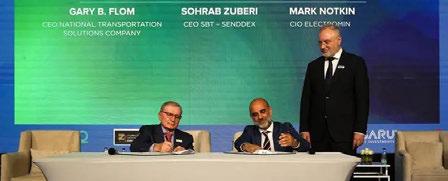
Trucks (LDTs), establishing a new standard for eco-friendly transportation.
NTSC CEO, Gary B. Flom, expressed the company’s dedication to the Vision 2030 goals. “Our collaboration with SBT-SENDDEX and Electromin reflects our commitment to advancing sustainable transportation with leading companies in KSA. By leveraging innovative decarbonization strategies, we aim to make a significant impact aligned with the United Nations Sustainable
Development Goals,” he said.
SBT is a leading logistics company with over 40 years of experience in KSA. It operates one the largest and most extensive transportation networks in the Kingdom through its award winning SENDDEX Express transportation business as well as offering Storage, Fullillment and tailor-made Supply Chain solutions to the Automotive, Aviation, Manufacturing, FMCG, E-commerce and Retail industries.
• The sixth edition of Intersec Saudi Arabia will take place at the Riyadh International Convention and Exhibition Center (RICEC) from 1-3 October
• Saudi Arabia currently has over 5,200 ongoing construction projects worth more than US$819 billion, according to research, underscoring the need for robust fire safety strategies in the built environment
n Intersec Saudi Arabia’s sixth edition will be held from October 1-3 at the Riyadh International Convention and Exhibition Center (RICEC). Amidst Saudi Arabia’s ongoing construction boom, with over 5,200 projects valued at more than USD 819 billion, the event will emphasize the critical importance of fire safety in the built environment.
A key highlight is the panel discussion featuring Neil Odin, Chief Fire Officer from the UK National Fire Chiefs Council. With over 30 years of fire service experience, Odin will provide insights into post-
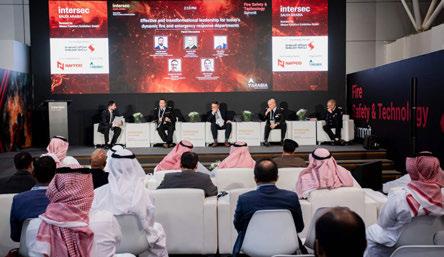
incident fire management. His session, Crisis to Recovery: Strategies for Effective Fire Post-Incident Management, will explore the essential link between fire-safe building designs, prevention strategies, and recovery efforts after a fire incident.
Jamal Al Ghamdi, Corporate Process
Safety Director at Sadara Chemical Company, will join Odin on the panel. Together, they will address best practices for restoring normality after a fire, including for affected populations and buildings. This discussion is part of the Fire Protection & Technology Summit.
n US$2.5 billion Middle East Industrial Valves Market is on an upswing expected to reach nearly US$5 billion. The Middle East industrial valve market is set to touch nearly US$5 billion in the next five to seven years from the current US$2.5 billion, on the back of the rapid infrastructure development across the region, growing at a CAGR of more than 6 per cent.
Showcasing the upcoming global expo, Valve World Expo 2024, a Messe Duesseldorf spokesperson said the Middle East was one of the largest markets for industrial valves in the world. Messe Duesseldorf is the organiser of the show, the largest globally for industrial valves.
“Despite the geopolitical instabilities of the larger region, with the huge infrastructure developments across the Middle East, particularly in the GCC, the demand for industrial valves have continued to grow exponentially. Oil and gas industry has always been a huge traditional buyer for industrial valves, but rapid development in sectors

such as desalination and water treatment, power generation etc. have catalysed growth for the industry,” said Friedrich Georg Kehrer, Global Portfolio Director, Messe Duesseldorf.
According to Global Market Insights (GMI), the key players in the Middle East in the uptake of valves are Saudi Arabia, the UAE and Egypt. In 2023, Saudi Arabia dominated the global industrial valve market with around 22.4 pr cent of market share. This
trend will continue at a CAGR of 6.6 per cent through 2032, closely followed by the UAE at a rate of nearly 6 per cent.
According to a report by Market and Markets, the global industrial valves market will be to the tune of USD 99.8 billion in 2028, from USD 80.4 billion in 2023. Across Asia-Pacific, the market size for industrial valves will be to the tune of USD 28.95 billion by 2029.
• Dubai-based Eanan Al Samma has conducted the first test flights of its Rikaz heavy-lift uncrewed cargo aircraft.
n The Rikaz, is a multicopter electric vertical-takeoff-and-landing vehicle with four three-blade propellers mounted on arms. Cargo is carried in a net slung under the center of the open, box-like airframe. The first few flights tested automated flight controls, navigation systems and communications stability.
With four propellers, the aircraft is designed to carry a 50-kg (110-lb.) payload 30 km (19 mi.) at 60 kph (37 mph) and be recharged in 15 min. By adding propellers, the payload can be increased to 200 kg. This marks a major milestone in company’s mission towards commercialising its innovative drone technology, which is poised to revolutionise logistics and transportation in the region.
Founded in 2023 by a group of United Arab Emirates and European executives, Eanan is developing a family of uncrewed aircraft with the goal of entering the urban air mobility market.
In addition to the Rikaz, Eanan is
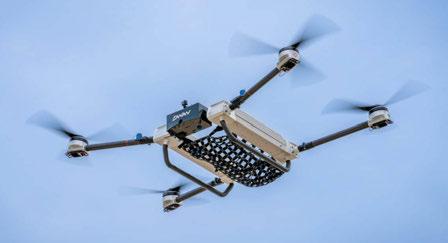
flight-testing a subscale model of the J-500 vertical-takeoff-and-landing uncrewed cargo aircraft developed with Jetoptera and fitted with the U.S. startup’s fluidic propulsion system.
Ulrich Weckx, CEO at EANAN, stated: “We are proud to have achieved this remarkable milestone, which aligns perfectly with Dubai’s vision of becoming a global leader in urban air mobility by embracing cutting-edge transportation technologies.
Mashaal
Al Marzooqi, R&D Director
at EANAN, stated, “By successfully testing the RIKAZ Heavy Cargo Drone’s communication stability, we have taken a significant step towards comprehending the full potential of UAVs to maintain consistent and secure communication during flight. This is extremely important while managing the UAV’s operations remotely, particularly in complex air traffic environments or when conducting sensitive missions such as delivering emergency or urban cargo supplies.”
• The Middle East Business Aviation Association expects the global private jet market to reach $39.84 billion in 2025 from around $25.87 billion in 2021, with the GCC region representing a major part of that growth.
n Business aviation at the Mohammed bin Rashid Aerospace Hub (MBRAH) at Dubai South continues to achieve outstanding growth with the number of private jet movements rising 7 percent year-on-year to 8,472 during the first six months of 2024. The growing demand for business aviation in Dubai reflects Al Maktoum International Airport’s status as the leading airport for international business aviation movements in the Middle East.
The growth in Dubai’s private jet movements this year follows a record 16,657 movements in 2023. Dubai South now expects private jet activity to reach 18,000 by the end of 2024.

“We anticipate these figures to further grow as a result of the new developments of aircraft hangars and maintenance facilities in Dubai South,” stated Khalifa Al Zaffin, executive chairman of Dubai Aviation City Corporation and Dubai South. Dubai South will also host the
MEBAA Show, the region’s leading business aviation event, in December 2024, further driving growth.
“At MBRAH, we will continue with our mandate to position Dubai as the aviation capital of the world, in alignment with the government’s vision” he added.


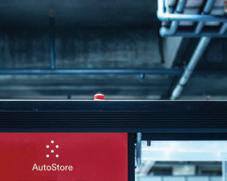

• Swisslog has implemented over 350 projects in the Food & Beverage sector alone across 35 countries. Regionally, its clients include major players like Almarai, a global leader in dairy production.
• Company to drive KSA’s logistics evolution with advanced automation solutions at Saudi Logistics Expo 2024.
n Swisslog, the global leader in innovative robotic, data-driven, and flexible automated solutions, will be at the Saudi Logistics Expo 2024, taking place from September 2-4. This premier event is Saudi Arabia’s largest platform dedicated to supply chain, warehousing, and logistics, bringing together over 11,000 industry professionals and showcasing the latest in innovative technologies and solutions.
The company will feature a dynamic demo of its cuttingedge solution, AutoStore, providing visitors with an opportunity to experience firsthand the efficiency and precision of automated storage and order processing. It integrates with existing infrastructures, effortlessly meeting the surging demand for rapid, precise, and reliable order fulfilment. As a leading global and regional logistics provider, Swisslog sets new standards in warehouse automation, keeping businesses competitive in the fast-evolving economy.
Projections indicate that the Middle East and Africa (MEA) automated materials handling market will reach over US$1,885 million by 2026, with Saudi Arabia holding one of the largest market shares in the region. Saudi Logistics Expo offers the ideal stage for Swisslog to showcase its holistic state-of-the-art warehousing and supply chain solutions designed to maximize space utilisation and streamline operations with sharper insights, faster services, scalability, and cost efficiencies for local industries. The company’s participation underscores its commitment to delivering future-proof solutions that meet the unique needs of its local customers, backed by a highly experienced local team and over 3,000 global experts.






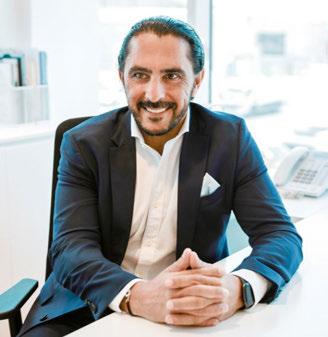
Rami Younes, General Manager at Swisslog Middle East, commented: “As businesses in Saudi Arabia continue to expand and evolve, the need for reliable, efficient, and scalable automation solutions has never been greater. We offer unmatched expertise in warehouse automation, driven by our dedicated local team and supported by our global network, in a market projected to reach over US$1,885 million by 2026, with KSA holding one of the largest shares in the MEA region. We are excited to demonstrate the capabilities of our AutoStore system at the Saudi Logistics Expo, ideal for businesses looking to optimize space utilization, improve inventory management, and enhance order fulfilment accuracy.
For over 100 years, Swisslog has been solving the most complex intralogistics automation challenges. Its profile includes high-profile projects with Arvato Supply Chain, DB Schenker, Gucci, Coca-Cola, Unilever, Pepsi, and many more. In the region, Swisslog boasts an impressive client roster that includes industry titans such as Almarai, one of the largest vertically integrated dairy companies in the world. In the F&B sector alone, Swisslog has executed over 350 projects across 35 countries.


n Volvo’s next-generation heavy-duty electric truck will be able to drive up to 600 km on one single charge. The longer range represents a breakthrough for long-distance transport with zero tailpipe emissions.
The electrification of heavy trucks is continuing across the world and longer distances are now becoming a possibility.
Next year Volvo will launch a new long-range version of its FH Electric that will be able to reach up to 600 km on one charge. This will allow transport companies to operate electric trucks on interregional and long-distance routes and to drive a full working day without having to recharge. The new Volvo FH Electric will be released for sale during the second half of 2025.
“Our new electric flagship will be a great complement to our wide range of electric trucks and enable zero-exhaust emission transport also for the longer distances. It will be a great solution for transport companies with a high annual mileage on their trucks and with a strong commitment to reduce CO2,” says Roger Alm, President Volvo Trucks.
The enabler for the 600 km range is Volvo’s new driveline technology, the so-called e-axle, which creates space for significantly more battery capacity onboard. More efficient batteries, a further improved
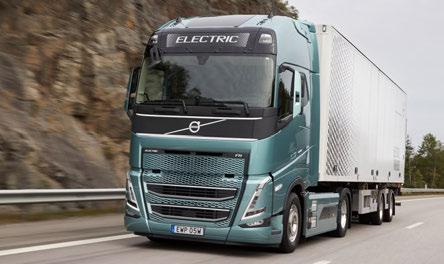
battery management system and overall efficiency of the powertrain also contribute to the extended range.
Volvo Trucks is a global leader in medium- and heavy-duty electric trucks with eight battery-electric models in their portfolio. The wide product range makes it possible to electrify city and regional distribution, construction, waste management and soon, long distance transport. Volvo has so far delivered more than 3,800 electric trucks to customers in 46 countries around the world.
“The transport sector represents seven percent of global carbon emissions. Battery-
electric trucks are important tools to reduce the climate footprint. Besides the important environmental gains that electric trucks bring, they offer truck drivers a much better working environment, with much lower levels of noise and vibrations,” says Roger Alm. Volvo Trucks drives the transition towards fossil-free transport to reach its net-zero emissions target by 2040 using a three-path technology strategy. The three-path technology approach is built on battery electric, fuel cell electric and combustion engines that run on renewable fuels like green hydrogen, biogas or HVO (Hydrogenated Vegetable Oil).
n The Saudi Zakat, Tax and Customs Authority (ZATCA) has announced waiving the fees for all customs services for exports. It also reduced customs service fees for imports through a new mechanism for calculating import service fees, which involves a fee of 0.15 percent of the value of the incoming goods for customs declaration. The new fee structure will take effect on Oct. 6, 2024.
The decision regarding the Fee Rules on Customs Services was taken by the Board of Directors of ZATCA, which includes specifying the fees on customs services provided by ZATCA and the conditions for fulfilling them. The decision also stipulates a fee of SR15 for customs declaration processing services on individuals’ shipments arriving through online stores,
provided that the value of these shipments does not exceed SR1,000.
ZATCA clarified that the customs services for exports for which the fees have been waived include customs declaration processing service, lead seal, land port loading services, X-ray inspection, customs data exchange, and sample analysis exchange at specialized laboratories. ZATCA added that previously the customs service fees for imports included a charge of SR100 for each container inspected by X-ray, an additional SR 100 for “information exchange” services, and SR20 for customs declaration processing services.
The new fee will be based on 0.15 percent of the value of the incoming goods, including insurance and shipping, with a maximum of SR 500 and a minimum of SR15

and a special cap of SR130 for shipments exempt from customs duties and taxes.
ZATCA has offered taxpayers and customers to address any inquiries via the unified 24/7 call centre number (19993), or through its X Account (@Zatca_Care), or e-mail (info@zatca.gov.sa), or instant chatting through ZATCA’s website (zatca. gov.sa). ZATCA indicated that the waiver of customs service fees for exports will contribute to encouraging exporters and alleviating financial burdens, especially for SMEs, as well as enhancing the efficiency and competitiveness of Saudi exports.
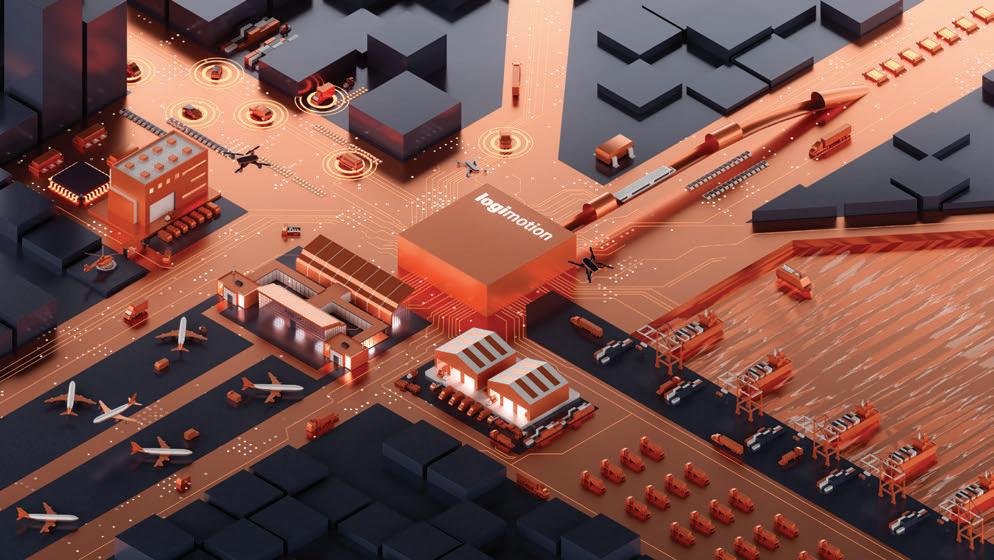
10 – 11 December 2024
Dubai World Trade Centre
Secure your spot at Dubai's premier logistics & mobility event
Launch Edition
Collocated with: Meet 2,000+ Visitors Join our Mainstage Conferences Network with 125+ Speakers
n Lufthansa Cargo inaugurated its South Asia pharmaceutical hub at India’s Hyderabad airport with shipments of medicines to Philadelphia and Chicago.
The Md-11 freight flight followed Lufthansa Cargo’s certification of the airport as meeting the complex requirements for transporting temperature-sensitive pharmaceuticals; the first station in its global network to be awarded this status.
“With the certification of the key stations for cold-chain transport in our network we are strengthening our commitment to transporting temperature-sensitive shipments,” Christopher Dehio, Senior Manager Global Key Accounts Temperature Control at Lufthansa Cargo, said recently. “In parallel to the certification process, we are further expanding our own fleet of coldchain containers in Hyderabad.”
In December 2023, Lufthansa Cargo and the operator of Hyderabad Airport, the GMR Group, announced plans to jointly develop the airport into the key hub in South Asia for the transport of temperature-
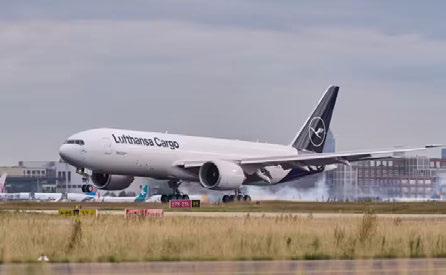
sensitive pharmaceuticals. Today the airport has a state-of-the-art infrastructure that is tailored to the needs of the growing pharmaceuticals industry.
The first two cold-chain transports from Lufthansa Cargo’s new pharma hub
n Well-known terminal operator, DP World, has completed the acquisition of Cargo Services Far East, a Hong Kong-based supply chain provider. Cargo Services is involved in origin services, or in other words, moving goods from the factory floor to the customer’s door. It employs over 2,500 people in China and across Asia, Europe, South Africa, and the US.
The Dubai-based operator now has more than 115,000 employees, spread over 800 locations globally. By the end of the year, it will operate more than 200 freight forwarding offices, covering up to 95% of global trade flows.
Founded in 1989, Cargo Services was one of the earliest foreign logistics service providers to enter the China market. It established an extensive portfolio of solutions such as origin purchase order management, ocean freight, air freight, and warehousing for a diverse range of sectors. It has also expanded its portfolio to provide specialised cruise logistics services globally.
The acquisition process is officially complete, with plans for full integration
in Hyderabad got underway today with consignments from the Dr. Reddy and Gland Pharma pharmaceutical groups. The temperature-sensitive medicines were transported to Philadelphia and Chicago and via Frankfurt aboard a Lufthansa Cargo MD-11.
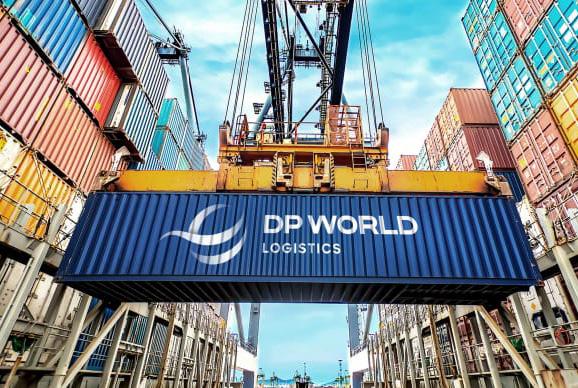
over the next few months. To ensure a seamless transition, the managing director of Cargo Services Group, John Lau will remain with the business and assume a senior leadership position within DP World.
“By joining DP World, we will gain access to extensive resources and expertise, allowing us to continue delivering top-tier freightforwarding and logistics services that our customers demand,” Lau said.
n Air cargo tonnages from Asia Pacific have rebounded strongly in the last full week of August after dipping sharply the previous week due to flight cancellations resulting from a typhoon in Northeast Asia, although tonnages from Europe have yet to bounce back from the mid-August ‘Assumption’ holiday.
According to the latest figures and analysis from WorldACD Market Data, worldwide air cargo tonnages in week 34 (1925 August) rebounded by +5%, compared with the previous week, mainly driven by a week-on-week (WoW) increase of +11% from Asia Pacific origins. That follows a -7% drop in worldwide flown cargo the previous week, most of which was linked to the impact of Typhoon Ampil on air cargo to and from Japan – and to a lesser extent South Korea – and to the 15 August holiday in various European countries. The impact of this week’s further typhoon to affect Japan, Typhoon Shanshan, are expected to be visible in next week’s report (week 35).
The patterns in weeks 33 and 34 are similar to last year, where in addition to the annual ‘Assumption’ holiday, flights in Asia Pacific were disrupted by last year’s Typhoon
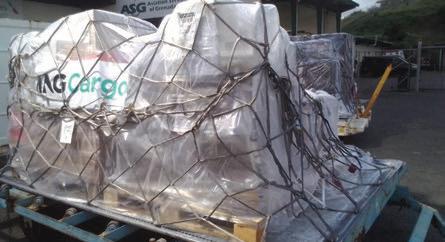
Lan. One difference is that tonnages from Europe bounced back more quickly in week 34 last year, whereas this year the recovery from the European holiday is quite limited (+1%, WoW).
Meanwhile, further analysis by WorldACD indicates that only around half of this week’s rebound in traffic from Asia Pacific is related to the recovery from the effects of the typhoon on Japanese and South Korean markets, with the other 50%
resulting from renewed growth from China and Hong Kong.
Combining the totals from weeks 33 and 34, overall worldwide tonnages are up, year on year (YoY), by +9%, driven by doubledigit percentage increases from Asia Pacific (+11%) and Middle East & South Asia (MESA, +10%) origins, with increases of +8% from both Europe and Central & South America (CSA) origins, in addition to increases of +6% from North America and +4% from Africa.
n The Saudi Ports Authority (Mawani) announced a substantial increase in cargo tonnage handled at its ports in August with the total tonnage reaching 30,527,279 tonnes, thus reflecting a 26.57% growth compared to the same period last year.
According to the Ports Authority, export containers surged by 18.76% to reach 258,955 TEUs. Import containers also significantly increased by 15.24% to reach 261,288 TEUs.
General cargo stood at 711,111 tonnes, bulk solid cargo amounted to 4,832,305 tonnes, and bulk liquid cargo reached 17,525,862 tonnes. Livestock imports, however, decreased by 24.27% to 422,449 heads, said Mawani in a statement.
While handled containers decreased by 5.01% to 685,647 TEUs, transhipment containers dropped by 40.29% to 165,404 TEUs; the overall cargo volume demonstrated robust growth. Shipping traffic also decreased by 4.18% to 986 ships, and
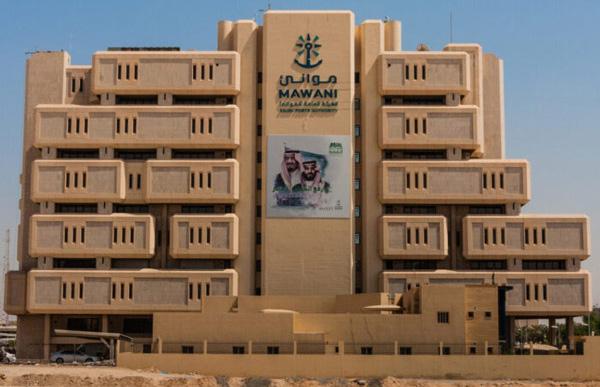
passenger numbers declined by 32.5% to 50,345. However, the number of cars shipped increased by 24.5% to 103,416, it stated. The authority had previously reported
a 9.11% increase in cargo tonnage for July. Mawani pointed out that consistent cargo volume growth underscores Saudi ports’ increasing efficiency and capacity.
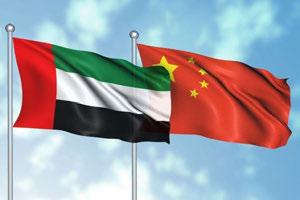
n The United Arab Emirates has played an important role as an influential economic force, in supporting major global initiatives such as China’s Belt and Road Initiative (BRI), launched by President Xi Jinping in 2013.
The UAE’s active participation in the BRI, whose ninth summit will be held in the Hong Kong Special Administrative Region of the People’s Republic of China on 11-12 September under the theme “Building a Connected, Innovative and Green Belt and Road”, along with its strong ties with China in general and Hong Kong in particular, underscores its commitment to economic development and international cooperation.
According to a report by Emirates News Agency (WAM) the UAE continues to make significant contributions to the initiative, with 65 participating countries representing 30 percent of the global gross domestic product (GDP).
The country has invested US$10 billion in the UAE-China Joint Investment Cooperation Fund to support BRI projects in East Africa and signed 13 memorandums of understanding (MoUs) with China in 2018 to invest in multiple areas within the UAE.
Data for the first half of 2023 showed that the value of the UAE’s non-oil trade with the countries within the BRI reached US$305 billion, which contributed 90 percent of the UAE’s non-oil trade during that period and achieved a growth of more than 13 percent compared to the first half of 2022.
The Belt and Road Initiative, a massive infrastructure and investment project, aims to connect Asia, Europe, and Africa through land and maritime routes. The UAE, with its strategic location, has become a critical point in the success of the initiative.
The ninth edition of the summit comes as the UAE and China celebrate 40 years of diplomatic relations in 1984, with China being the UAE’s number one trading partner in the world.
Recent data released by the Chinese Ministry of Foreign Affairs showed that during the first half of 2024, the volume of trade exchange between the two countries reached US$50.108 billion, including US$18.66 billion in UAE exports and US$31.448 billion in imports from China.
n Since Hellmann Worldwide Logistics set up a central distribution centre for Wilo in the German town Werne around two years ago, both companies have significantly strengthened their cooperation. The global logistics provider has successively expanded its operational services for the premium manufacturer of pumps and pump systems for the building technology, water, and industry sectors. By doubling the warehouse capacity, leased from Garbe Industrial Real Estate, the two corporations are creating ideal conditions for further collaboration and at the same time unlocking opportunities for strategic growth.
The central storage facility, which has been extended to a total of 40,000 square meters, links many strategically important operational processes for Wilo. In addition to supporting global distribution processes, the facility also supports the production supply for the nearby Wilo factory in Dortmund. To organize the processes even more efficiently and integrate them seamlessly, other warehouse locations have been merged and consolidated in Werne in recent years.
“The consolidation of our warehouses enables a significant simplification and simultaneous optimization of the supply chain, which not only increases the flow of materials, but also communication and delivery reliability for our customers,” says Hans Keeris, Senior Vice President Procurement, Supply Chain & Logistics for the Wilo Group.
“We are very appreciative of the continuous development of our partnership with Wilo. The doubling of our warehouse capacity in Werne not only enables us to further optimize our operational services but is also a good basis for jointly implementing innovative and sustainable solutions and continuous growth,” says Volker Sauerborn, Chief Operating Officer Contract Logistics at Hellmann Worldwide Logistics.
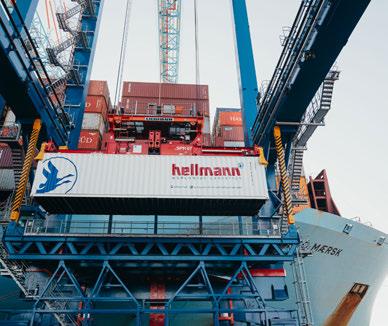
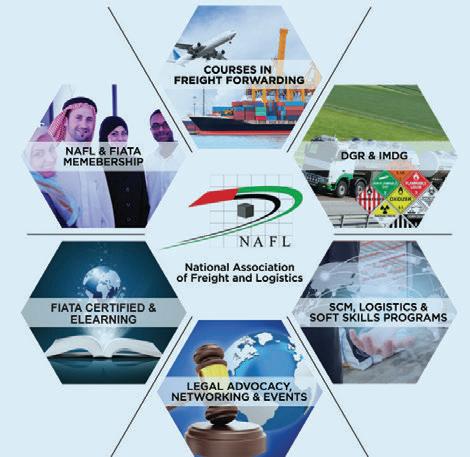

International Benefits:
+ The FIATA member certificate
+ Use of the Fiata logo
+ Entry in the FIATA members directory & networking events



+ Advertising in the FIATA members directory, review and information (FIATA e-Flash)
+ Special Rates for FIATA publication and articles
+ Access to secretariat›s assistance
+ FIATA arbitration code
+ Use of FIATA documents
+ FIATA worldwide member connectivity
+ Talent Connect Worldwide, E-Learning





+ Discountes rates in participating in global and regional conferences
+ Asssistance in case of legal advocacy
+ Discounts for cargo/logistic events and exhibition stands
+ Discount training for NAFL members
+ Training/Certification for regional/international courses
+ Insurance at discounted rates (cargo/liability/medical)
+ Complimentary internship, Skill upgrade and Mentoring & Innovation ideas
+ Discounted supplier rates for industry products

n As the global push towards electrifying transportation intensifies, one sector remains critically underserved: eHGVs. The lack of public megawatt charging infrastructure is a major hurdle, leaving fleet operators and logistics companies grappling with the limitations of current charging solutions, which is to charge at base – significantly limiting the range of use-cases for 16 to 44 tonne vehicles.
TUAL, a leader in electric vehicle charging technology, is addressing this gap with its innovative, 120kWH and 180kWH swappable powerbank solutions, which will maximise vehicle up-time whilst ensuring route flexibility and extending an eHGV’s stem millage by up to 120 miles, depending on application.
The transportation industry is at a crossroads, with regulatory pressures and sustainability goals driving a rapid shift towards zero-emission vehicles. However, the transition to eHGVs has been hindered by the almost complete absence of robust and accessible megawatt charging networks. Current public charging infrastructure is not only inaccessible and underpowered for these heavy-
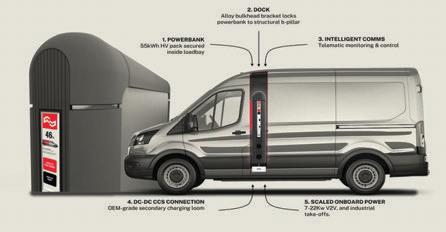
duty vehicles but would also contribute to significant operational downtime –impacting productivity, profitability, and vehicle viability.
TUAL’s swappable power banks represent a breakthrough in addressing the immediate charging needs of eHGVs. Developed in collaboration with some of Europe’s largest fleet operators, these power banks offer a modular and scalable solution that can be integrated seamlessly into existing eHGV platforms. This technology
enables haulage fleet operators to maintain continuous operations without relying on the UK’s underdeveloped megawatt charging infrastructure.
By utilising TUAL’s swappable powerbanks, fleets can operate independently of the existing grid infrastructure, which is often non-existent or insufficient for supporting the demands of eHGVs. This independence not only enhances operational efficiency, but also reduces the strain on local power grids.
n Volvo Group Venture Capital AB has invested in the U.S.-based company aifleet, a trucking company leveraging its unique AI-technology to reshape the future of trucking focusing on truck utilization and driver satisfaction.
“aifleet is addressing inefficiencies in the trucking industry in a differentiated manner, building technology and proving out its capabilities through their own fleet operations,” said Joe Darcy, Investor at Volvo Group Venture Capital. “Not only are they increasing the utilization of the trucks on the road but also making sure drivers have an optimized working environment.”
Founded in 2020, aifleet operates in the U.S. full-truckload (FTL) segment of the trucking industry, where a truck’s full capacity is bought to ship larger freight between set destinations. The segment is currently fragmented and challenged by low driver utilization, and facing inefficiencies like empty miles in the supply chain.
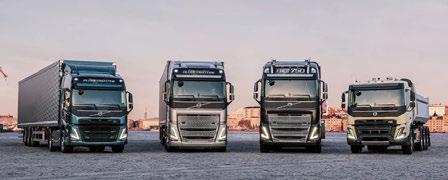
“The U.S. full-truckload (FTL) market size is $400 billion, but it’s a massively inefficient and fragmented market with half a million carriers, where even the biggest has less than 1% of the market. As truck utilization has trended downward since 2018, aifleet has developed technology to mitigate the utilization problem to radically improve trucking efficiencies, while bringing real humanity back to the driver experience,”
said Marc El Khoury, co-founder and CEO of aifleet. “We are excited about Volvo’s investment and we are looking forward to continuing to leverage our technology to create a more sustainable fleet and industry.” By optimizing route planning and scheduling, and building end-to-end automation, aifleet’s own operation generate over 40% higher driver utilization than industry average.

n Vessev, a global leader in sustainable marine technology, has today showcased its VS—9 electric hydrofoil, complete with cabin and interior, for the first time as it enters the final phase of sea trials ahead of commercial certification. Production of VS—9s has already began with the first vessel to enter the commercial service of the largest ferry operator in New Zealand – Fullers 360. Thanks to a unique blend of stylish cabin design and unparalleled comfort, more similar to flying than power boating, the nine-meter VS—9 can transport 10 passengers at a service speed of 25 knots and is set to open-up entirely new opportunities for water transport and tourism.
While traditional commercial passenger vessels have tended toward being larger in order to be comfortable, Vessev’s vision for the VS—9 platform takes an entirely different tack.
CEO Eric Laakmann commented: “Traditionally, larger vessels are required to deliver a comfortable passenger experience as they can handle the impact of waves and wake. By flying above the waves, the
VS—9 delivers a large vessel experience on an agile platform that can be berthed and charged in nearly any marina.
“One way of looking at the impact of this vessel is that our waterways today are like roadways, where the only comfortable mode of transportation are very large multi-passenger buses – i.e. ferries. These large vessels are here to stay, but they will be augmented with point-to-point services delivered by vessels such as the VS—9. It’s like introducing a limo into a world of buses.
Designed and built by Vessev with input from New Zealand’s largest ferry operator, Fullers360 and its decarbonisation team NetZero Maritime, the VS—9 delivers smooth and quiet travel on the water like never before.
Cocooned from the elements, at low speeds the VS—9 is stabilised by its foiling technology below the waterline. As the vessel accelerates the America’s Cupderived foils cause the carbon fibre hull to rise effortlessly out of the water where it skims 50cm above, clear of turbulent waves and wake.
Inside, the new cabin is inspired by the premium automotive sector. It is both comfortable and spacious, with quality materials used throughout, along with ergonomic seats and armrests allowing passengers to relax and enjoy the stunning views afforded by the vessel’s panoramic windows. The VS—9 takes inspiration from private jet travel as well as premium automotive marques, such as Rivian.
Vessev’s lead designer, Alain Brideson shared: “Our objective for the VS—9 was to create something that is beautifully utilitarian. Using the tools of the premium automotive segment, every surface of the VS—9 has been carefully crafted to emanate quality. The entire exterior harmoniously embeds functionality into a clean and balanced form. The interior was all about reducing to the bare essentials and ensuring the cabin is open and flowing.”
Mike Horne, CEO Fullers360 said: “Flying on the VS—9’s foils and relaxing into its stylish interior is an unmatched feeling. We are thrilled to see the vessel progress further toward taking its first commercial journey on the Waitematā. Introducing the VS—9 into the Fullers360 fleet and eventually bringing larger electric foiling vessels to life is incredibly exciting for our industry”
We are excited to showcase a new spin on how business is done. This space is dedicated to outstanding individuals who are the driving force of the logistics industry. Rohan Singhvi in conversation with , Editor, Global Supply Chain.



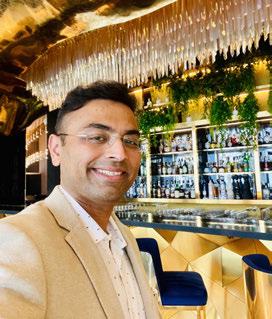

it! The variety each day brings keeps things exciting.
AM: Are you a coffee or tea person?
If so, how many cups a day?
I am a coffee person. I usually drink two in the morning and one in the afternoon. Hot coffee in the winter and iced coffee in the summer.
AM: What do you do to keep yourself fit?

Rohan Singhvi
Global
Head of Logistics and Warehousing, RAK Ceramics
AM: What’s your typical day like?
Are or tea a usually in the and AM: fit? nor into believe the Tennis. this regular routine keeps in do
I am neither a gym person nor into healthy meals. I believe in the philosophy of playing one sport a day. This includes either Cricket, Table Tennis, Squash or Tennis. Maintaining this regular routine helps me de-stress and keeps me in shape.
AM: What time do you break for lunch?
I usually break around 1 pm and finish by 1.30pm followed by refreshments.
to scuba dive with whales at this archipelago of 1,200 coral islands, to witness the magnificent biodiversity of the country.
AM: What advice would you give other business professionals juggling time?
AM: Around what time of day do you wrap up work at the office? Our company has a perfect work-life balance. Most days, I wrap up work by 6 pm, unless there’s something urgent that warrants my presence with the team at the office.
It is all a matter of time management. Set up a calendar and write down the due dates for everything for the month. This will help you remember to do things more often and help you to be organised. Once you have finished something, mark it off the calendar and start on the next assignment. Whilst you are at work, prioritise your work life during this time. When you have finished work, try to leave your work life behind as you travel home and focus on your social or home life.“You work to live and not live to work”That philosophy is probably the best way to do it. Time management is life management.
AM: When do you catch up on world/business events?
My usual work schedule is from 9 to 6, but my day is filled with a mix of activities with meetings, building strategies, site visits, monitoring projects, sorting regular operational challenges and giving direction to my team. It’s not unusual for me to juggle all these tasks in a single day, adding some elements of professional development, by allocating time for learning new skills and staying updated on industry-related developments. I also keep track of which teams need to hear from me, or from whom I need decisions, to ensure the project keeps advancing. Wrapping up my day involves jotting down notes. Evenings are usually networking at events or at the club, playing a sport or hanging out with friends. My job is incredibly engaging and dynamic, but I absolutely love
AM: How do you unwind in the evening?
After a hard day at work, all you want to do in the evening is relax and unwind. Getting lost in a Netflix series or listening to good music, is one of life’s little pleasures and a great way to do this. Weekends are usually busy with family parties or chilling out with friends. I adopt the philosophy of “work hard, but party harder.”
AM: When is your next holiday?
In the morning. I start my day reading the newspaper and magazines followed by watching the news channel during breakfast. This keeps me updated with what is going on in the world. Also, I get a lot of invitations from the supply chain events, which is the best networking platform to meet with industry experts and learn discover upcoming trends in the marketplace.

It is in October. I am visiting the world’s lowest lying country and the smallest country in Asia, with some of the most beautiful beaches, -- the Maldives. Truly called heaven on earth. I’m excited



AM: To me and my company, Global Supply Chain Magazine is… A knowledge powerhouse, which keeps me and my company up to date of what is going on in the dynamic and ever-changing logistics industry.

